Wednesday July 12, 2023
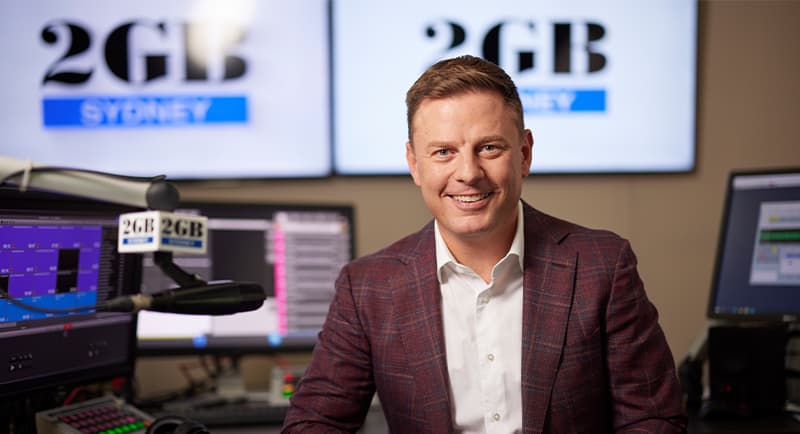
Radio Ratings 2023, Survey 4: Highlights + Full Results
Radio Ratings
Sydney
• 2GB and Ben Fordham surge to be clear #1
• KIIS #1 FM
See Also: Sydney Radio Ratings 2023 Survey 4: Ben Fordham and 2GB reclaim their crown
 Loading...
Loading...
Melbourne
• 3AW and Gold on top
• Nova, smooth & Triple M brekky up
See Also: Melbourne Radio Ratings 2023 Survey 4: 3AW and Gold on top; Nova, smoothfm & Triple M brekky up
 Loading...
Loading...
Brisbane
• Nova creeps ahead of B105
• 4BH challenging FM giants
See Also: Brisbane Radio Ratings 2023, Survey 4: Nova #1 while Stav, Abby and Matt top brekkie
 Loading...
Loading...
Adelaide
• Roo & Ditts help build bigger Triple M lead
• SAFM recovers
See Also: Adelaide Radio Ratings 2023, Survey 4: Triple M leads the pack again
 Loading...
Loading...
Perth
• Nova Perth jumps back over 20%
• 6PR breakfast climbs too
See Also: Perth Radio Ratings 2023, Survey 4: Nova holds the lead as 96FM remains second despite being down
 Loading...
Loading...
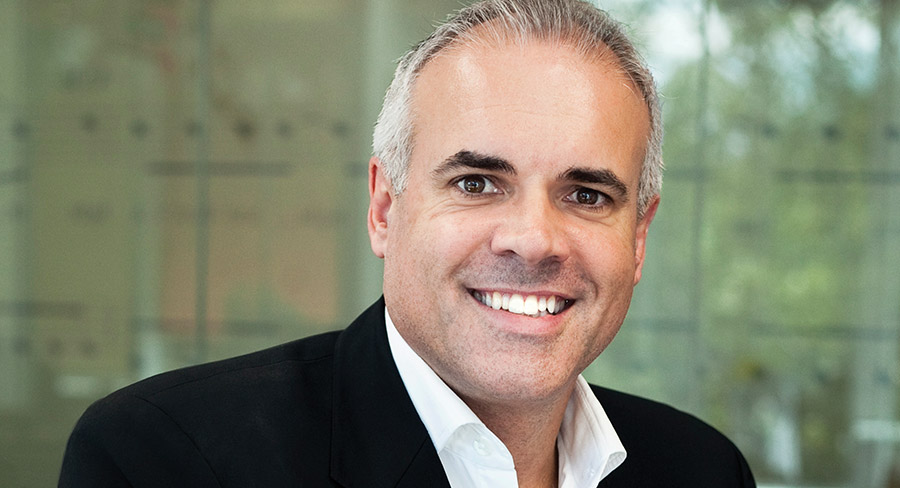
Duncan Campbell: Survey four results, and will Kyle and Jackie O stay at ARN?
The fourth GFK survey marks the halfway point in the year, with the Australian radio ratings landscape well and truly shaping up for 2023.
Mediaweek has caught up with some of the top content bosses in the industry to discuss their results, today speaking to ARN’s chief content officer Duncan Campbell.
Looking back on the first half of the year, Campbell says that the start has been positive for ARN.
“It’s been a solid first half of the year for us – obviously, it’s more challenging this year as our competitors improve as well. We’ve got some more work to do to ensure we end the year strong, but that’s what we’re about here.
“I’m looking forward to the second half of the year, and expect us to end the year as strongly as we have in previous years.”
KIIS 106.5
In Sydney, survey four saw 2GB’s Ben Fordham take #1 overall breakfast back after three surveys on top for Kyle and Jackie O. As much as people get caught in the headlines of radio ratings, Campbell points out that the show is still a “powerhouse.”
“The share is still very impressive. They’re at a 17.1 share in breakfast and 36 surveys as number one FM, so it’s an incredibly strong show.
“KIIS 106.5 is a very strong radio station, and we expect that to continue – Kyle and Jackie O is a very strong show. It was nice to be number one overall, but 2GB is a very strong station with a very loyal audience. We would have liked to hang on to that for a little bit longer, but that wasn’t to be.”
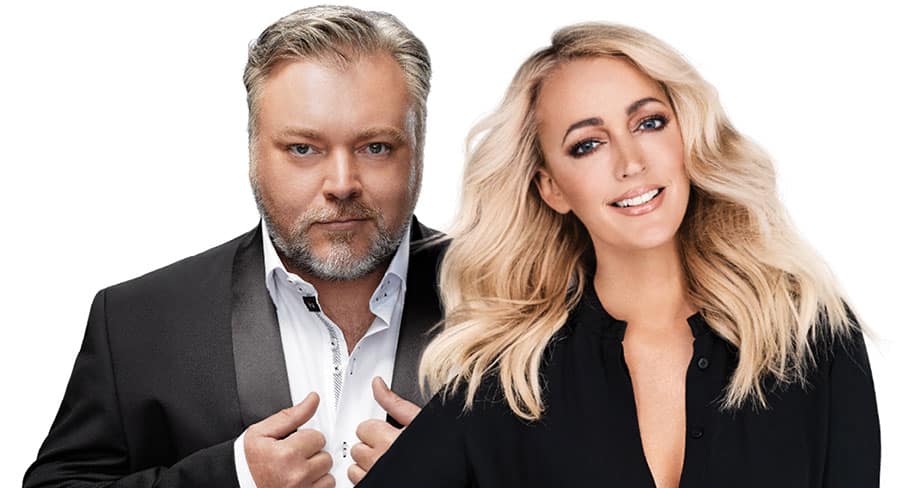
ARN in Melbourne
In Melbourne, KIIS 101.1 has recorded its strongest radio ratings results for 2023, recording 1.238 million listeners and increasing overall share to 7.5%.
“KIIS 101.1 has been a consistent, steady grower – it hasn’t leapt forward in any great increase, but it’s now posting some records results,” says Campbell. “I’m actually quite happy with the way 101.1 has been performing in Melbourne.”
Also in Melbourne, Gold continues to dominate the FM space.
“Gold is at 28 number one FMs in a row, and Christian O’Connell is at 25 number one FMs in a row. It’s tightened up down there a bit this survey, which it has done previously, but we’ve always pulled away.”
Entering H2
With half the surveys for the year done, there are four more to go. Campbell says that for the rest of the year, ARN will be focusing “on the stations which are under stress.”
“97.3 in Brisbane has a lot of work going on behind the scenes in terms of making sure that the breakfast show is building an audience. It had a 0.9 increase today, so 10.4, back into double figures. Only two points separate B105, KIIS, Triple M, and Nova, so it’s tight, we just need to get stronger in double figures.
“It’s a slow turnaround in Adelaide, but that’s making some progress.
“The other one would be just to keep KIIS 101.1 moving forward as well – seeing those incremental improvements continue to further strengthen that station, and give a stronger duopoly in Melbourne.”
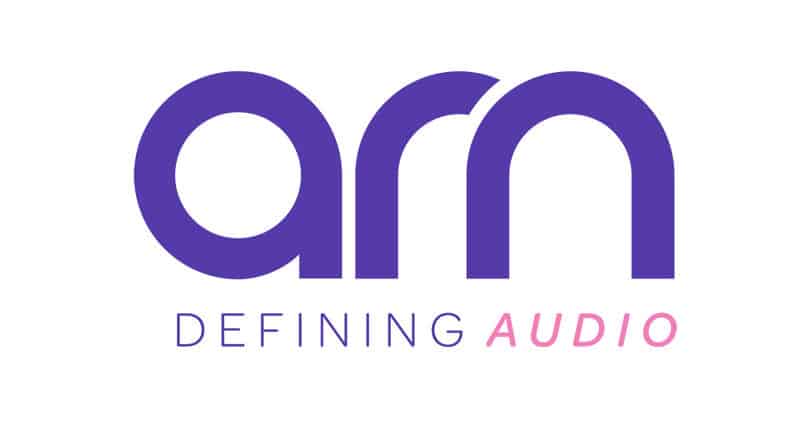
Will Kyle and Jackie O stay at ARN?
At the beginning of the month, reports that Kyle and Jackie O could potentially be returning to SCA made headlines across the industry. When asked if there was any truth to the reports, Campbell says that he would be “surprised if that was the case.”
“It’s almost 10 years to the month from when Kyle made that phone call to myself to move from SCA to ARN.
“I don’t know whether there’s any truth behind that, I don’t know whether that’s accurate or not. As far as we’re concerned, they’re here, they’re happy, and their contract doesn’t run out for another 18 months or so.
“I don’t think you make a move like that, and then 10 years later sign up to go back again. They’ve been away, so we haven’t actually had much interaction with them – but they keep telling me how much they like it here and they enjoy it. Until we hear differently, then it’s business as usual.”
–
Top Image: Duncan Campbell
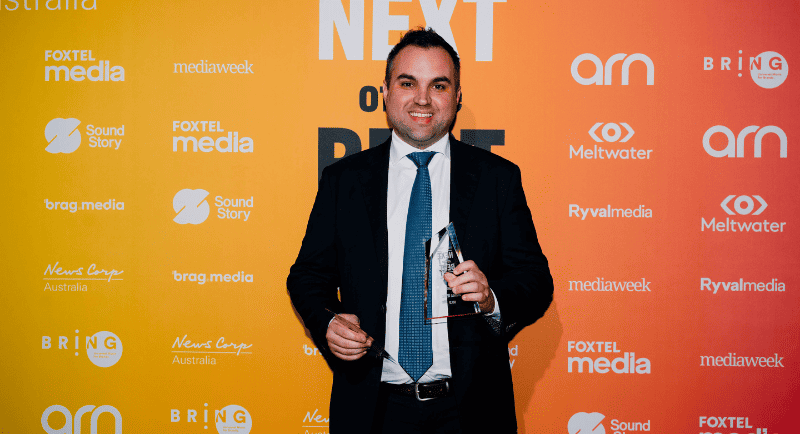
2GB’s James Willis on his Next of the Best gold win and why Ben Fordham is “the heart and soul of the program”
On May 26th, Mediaweek’s Next of the Best awards celebrated the best of under-40s talent across the media industry – including TV, radio, media agencies and PR.
Taking home gold for Audio – Producer was James Willis, executive producer, Ben Fordham Live (2GB Breakfast)
James Willis has worked at 2GB for over a decade and started as a sports reporter and senior producer for Ben Fordham Live. He has covered major events for 2GB including the 2016 Rio Olympics, the 2018 Commonwealth Games and the 2019 Rugby World Cup among others. He started as an executive producer for Ben Fordham Live in January of 2022 and has seen great success in the Radio Ratings, specifically seen in Survey 4.
Breakfast with Ben Fordham claimed back the #1 crown in the most recent survey after three surveys trailing Kyle and Jackie O. The show was the biggest lifter in the breakfast spot, up 3.1 points for a share of 18.1.
Read more: Sydney Radio Ratings 2023 Survey 4: Ben Fordham and 2GB reclaim their crown
Mediaweek caught up with James Willis about his Next of the Best win and the future of the industry.
Mediaweek: Congratulations on winning gold, how do you feel about the win?
Thank you so much. It was a fantastic night – particularly when the boss of Doltone House – Paul Signorelli – took my main course away and replaced it with a giant Tomahawk steak.
There were high-quality nominees across every category. It showed again how the media industry is in safe hands in the years ahead. Full marks to Mediaweek for creating the new event.
MW: How does this award reflect the work of you and your team?
It’s a wonderful acknowledgment of our hard work. Our production team is in the office every day at around 3am. They are some of the most dedicated, loyal and modest people I have ever worked with. More than anything – it was great to have an evening with them to reflect on some of the big stories we’ve covered so far this year.
It was also really special to have our radio bosses there. Head of Content Greg Byrnes has backed me from day one – along with Program Director Luke Davis and CEO Tom Malone. They are easily the best management team I’ve worked with in my time at 2GB.
MW: Ben Fordham’s show is Sydney’s top Breakfast show, what do you think it is that makes the show resonate with the Sydney audience?
For our show it’s about getting to 9am and feeling like we have covered everything relevant to the audience. They should know what’s going on in the world. It’s a broad variety. Content is king. Information and entertainment. If news breaks – we drop everything and run rolling coverage. But on slower days – we rely on delivering strong interviews and editorials.
We also pride ourselves on an ability to provide our listeners with a direct line to the decision makers in Canberra and Macquarie Street. It was great during the NSW election to just have Chris Minns and Dominic Perrottet take unprompted open-line calls for half an hour in the studio. That’s what talk back radio is all about.
I need to add – Ben Fordham is the heart and soul of the program. It’s also been incredible working closely with him over the past few years and learning his systems. He is an unbelievable broadcaster and works his backside off for his listeners.
MW: The Next of the Best is an under-40s award, how will today’s upcoming talent impact the industry in the future?
There is no shortage of talent coming through to handle the ongoing transformation of traditional media. Nine is investing heavily in streaming and Podcast – and the recent numbers speak for themselves. Streaming is the future of talk radio.
And my own team is going to play a huge role in whatever comes next. Liam is 23. Angus 24. Sophia 25. Sienna 18. Riley 19. Spiro 20. They are phenomenally talented and ready to take the media industry by storm. Their enthusiasm and energy is contagious. But before you ask – they are all on contract!
MW: What’s your outlook for the year ahead?
Keep working hard. Keep turning up. Keep delivering for our listeners and advertisers and the rest will take care of itself.
If the radio gods are on our side – we’ll end up at the Paris Olympics next year now that Nine has the TV and radio rights. And maybe a sneaky trip to Las Vegas for the NRL.
Read more: Mediaweek’s Next of the Best Awards: Winners Revealed
–
Top Image: James Willis
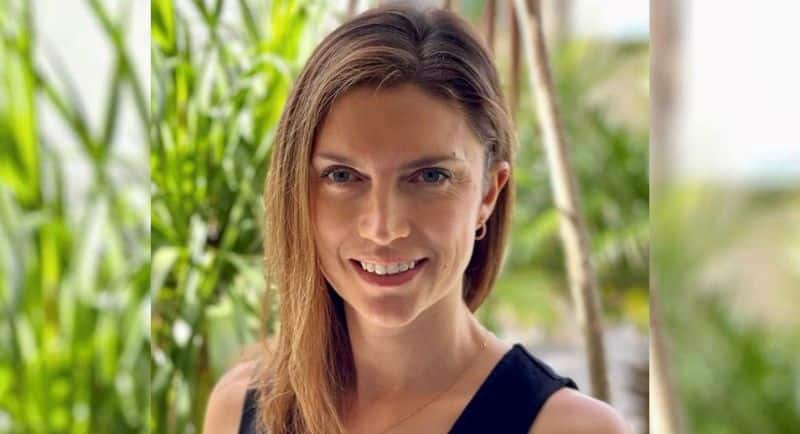
Spark Foundry’s chief investment officer Lucie Jansen reflects on her career journey and overcoming imposter syndrome
Lucie Jansen has spent the past four years with Publicis Groupe agency Spark Foundry.
Her time with the advertising agency saw her step up from national head of investment in 2019 to her current role as chief investment officer in 2022.
Jansen spoke to Mediaweek about her valuable start in the industry in London, learning to overcome imposter syndrome and her advice to women who want to scale up in the industry.
Learning valuable industry lessons in London
Recalling her start in the industry, Jansen shared that after university, she moved to London and entered her first media job as a TV buyer.
“It was a brutal environment, lots of shouting,” she revealed. “I loved the buying and mathematical side of the role, but I quickly realised there was a more productive way to build relationships, negotiate and deliver value than shouting and squabbling.”
“Likewise, I learnt some valuable lessons about leadership and what motivates and drives people and what doesn’t,” she added.
Stepping up as head of investment and overcoming imposter syndrome
Jansen stepped into the role of head of investment at Spark Foundry, formerly Blue449 at the time, while she was on maternity leave with her first child.
“It was not only a new role for me but a new agency and holding group. I was delighted and excited to be coming in to lead and shape a department and to be part of the national leadership team,” she said.
However, she recalled experiencing imposter syndrome that made her question her capabilities and her right to be in the position.
“I learnt that I really needed to back myself and to shut down the dreaded imposter and listen to my supporters, which I am lucky enough to have in my life and the company,” she said.
Support from Publicis Groupe and Spark Foundry
Reflecting on her career with Publicis Groupe and Spark Foundry, Jansen shared that she was shown support when her daughter was ten months old at the start of her tenure with the company.
“A new role, a new agency and a new Groupe would have been a challenge anyway, but that was exacerbated by being a new, very tired mum.
“From day one, I had enormous support. I had a flexible working arrangement, with a day at home and earlier office hours to allow me to pick my daughter up from day-care on the Northern Beaches. This was in 2018 before anyone had even heard of Covid,” she said.
Jansen noted that she was pregnant with her second child in 2019 when Blue449 and Spark merged. When she returned to work in late 2020 in a different and more flexible working environment, she received tremendous support from all levels of the business.
“With two little people at day-care bringing home an ongoing stream of children’s illnesses, I was very grateful for the support of my leadership team and the many benefits that the Groupe offer to returning parents – such as ‘Cub Care Leave’ which is the paid time off that Publicis provides staff to care for their sick children,” she added.
Jansen’s words of wisdom
Jansen advised women in the industry looking to scale up should: “back yourself, silence your negative thoughts and work hard to achieve your goals.”
“Working hard does not feel like a hardship if you enjoy your job and are supported and inspired by the people around you.”
When it comes to starting a family, Jansen shared: “Not everyone wants to have children, but if you do, never consider motherhood a barrier to having a career. Having children teaches you real empathy, patience, and resilience.
“But I would say, choose an employer that offers a program to develop leadership skills and support your journey through motherhood.”
Rounding out her advice, Jansen noted to “identify the type of leader you want to be”. She said: “Keep that in the back of your mind in the way you behave and the decisions you make.”
–
Top image: Lucie Jansen

COMvergence: OMD tops final 2022 global billings rankings and market shares report
COMvergence has issued its annual global billings rankings and market shares (BMS) report based on Final 2022 media agency and group billings – including digital media spends.
With a total 2022 billings figure estimated at $22.5B, and a growth rate of +1.6%, OMD stays as the top ranked media agency network worldwide. Closely behind, GroupM’s Mindshare placed 2nd with $22B (-1.2%), whilst MediaCom ranks 3rd with a total billings figure of $20B (+3.4%).
The merger of Essence and MediaCom, effective January 2023 under the name EssenceMediacom, will be reflected in the 2023 edition of COMvergence’s BMS report. Based on the 2022 billings figures, Olivier Gauthier, COMvergence Founder and CEO expects “EssenceMediacom to become the leading media agency network in 2023”
Top 5 Media Agency Networks Final 2022 Global

At the group level, GroupM remains a strong global leader with 15.9% industry market share and $63.9B in global billings (up by +7.2% vs. 2021). Publicis Media follows with $45.7B (up +8.5%). Omnicom Media Group rounds out the top 3 with $38.3B (up +8.2%).
Top 3 Media Agency Groups Final 2022 Global

In March 2022, the Big Six media agency networks/groups withdrew from Russia and ceded ownership of their agencies to local management teams. To provide the most objective gauge of the momentum the agency groups had last year (i.e., growth from new business activities and organic increases from existing client spends), COMvergence restated the global 2021 figures by excluding billings from Russia.
Key Takeaways
The 2022 total agency billings represent about 60% of the global (net) media spends which COMvergence estimates to be $401B [up +6.4%] across 46 markets, versus $377B in 2021. The remaining 40% is handled by smaller independent media and digital agencies, Chinese, Japanese, and South Korean local advertising agencies, and in-house advertiser teams (particularly in the digital/programmatic area).
The global billings managed by media agency networks owned by the Big Six holding companies plus major independent media agencies reached $253B in 2022. Combined they represent 96% of the global media investments studied by COMvergence and experienced an overall growth of +8% vs. 2021.
COMvergence estimates that digital reached 48% share of global spend in 2022 at $121B (per the digital spends handled by the Big Six and major independents). This is up from 43% in 2021 and 39% in 2020. Among the media agency networks, this ratio varies from 39% for Initiative to 63% for Essence. Differences are less significant at the group level, where the digital share ranges from 44% for Havas Media Network to 51% for OMG. Among the Big Six groups, digital media expenditures grew +16% year-on-year to reach $102.3B. Meanwhile, offline media spending fell -1% to $110.9B.
The present BMS study spans 107 independent local media agencies which represents a total 2022 billings figure of $25.5B (or about 11% of the total billings measured by COMvergence globally). Horizon Media (US) is by far the largest independent worldwide with a total 2022 billings figure of $7.7B. Horizon represents nearly one-third of the independent total billings. Local Planet is comprised of independent media agencies including Horizon Media (USA), Plus Company (Canada), Pilot (Germany), Media Italia (Italy), Zertem Group (Spain), among others. Local Planet shows a total billing 2022 of $11.6B, while Mediaplus, with 16 locally owned agencies studied globally, generated a total billing of $2.3B.
See Also: COMvergence Media Agency Billings & Market Shares 2022: OMD and Group M come out on top
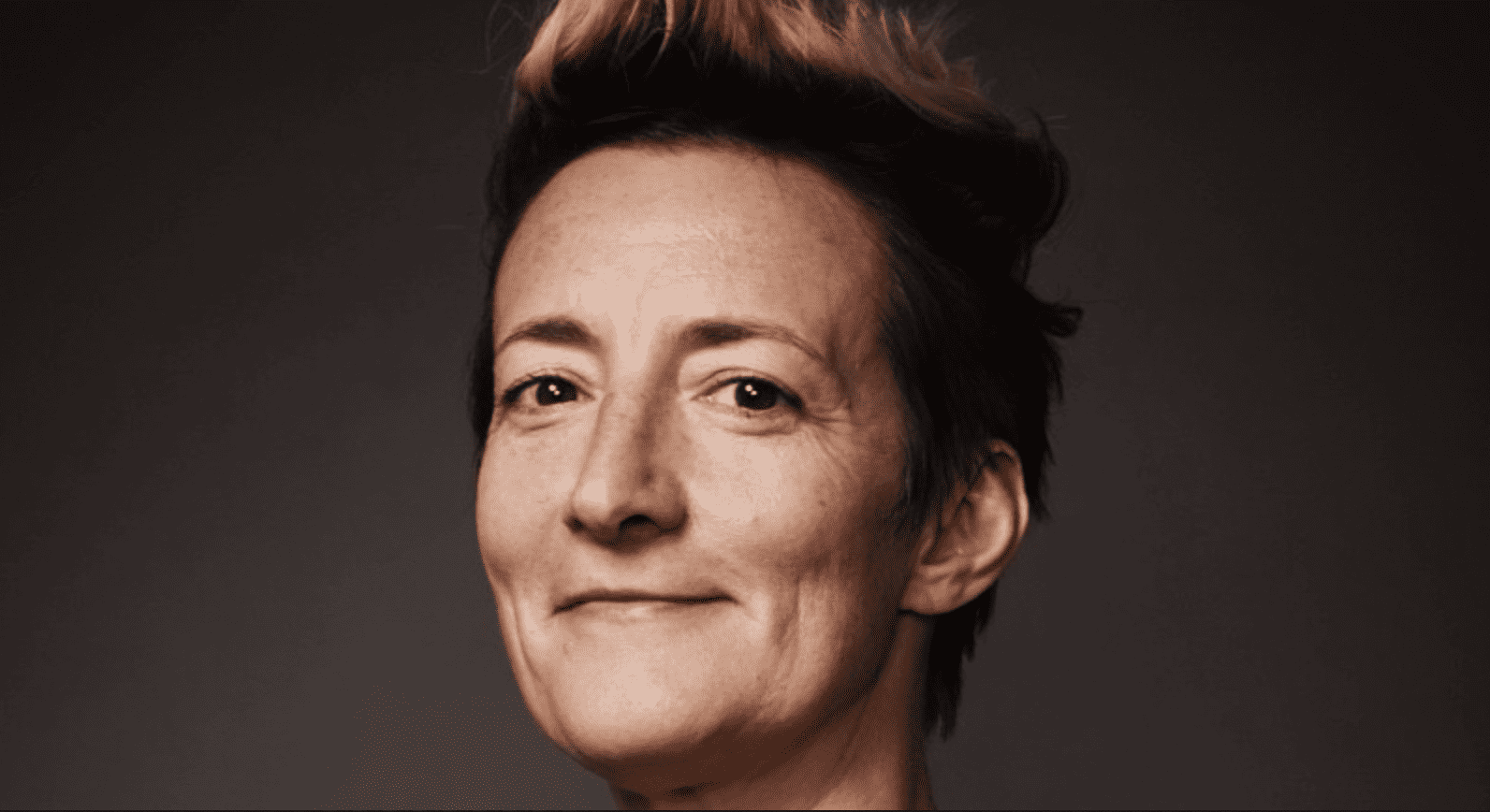
Getty Images: How visuals can help brands move beyond the superficial
With the dust settling on the 70th edition of the Cannes Lions International Festival of Creativity, this year’s attended are reflecting on their time in the south of France.
Whilst at the festival, Getty Images spoke on a range of topics over the course of the week. Focuses included masculinity, LGBTQ+ inclusivity in marketing, and autistic representation in media.
Mediaweek caught up with Dr. Rebecca Swift, VP global creative insights, Getty Images, to chat about bringing the brand to Cannes and what the future looks like.
What is the appeal of having Getty images at Cannes?
“Cannes provides an opportunity to share and showcase our collaborations with some of the world’s greatest brands, and give marketers, content creators and strategists a window into the trends shaping visual communications through our unique insights and expertise. It’s an opportunity to inspire and be inspired, to learn from new approaches and to help shape the future of creativity and creative businesses.
“Today, we are the world’s leading visual content marketplace, with over over 520 million visual assets, 516,000 contributors and 310 premium content partners. This gives us unparalleled insights into visual content creation, but also how brands can create impact with their audiences. We’re excited to have showcased some of that work and the individuals behind the lens at Cannes this year.”
What industry trends and discussion points did you notice while you were there and how do you think that they apply to Getty Images?
“I was part of a really interesting panel discussion on masculinity. Together with BBD Perfect Storm’s New Macho, we recently unveiled some new research on the portrayal of men in brand communications, which found that harmful masculine stereotypes continue to permeate online media and advertising. It couldn’t come at a more critical time, as men’s mental health and attitudes towards issues like gender equality continue to decline in all parts of the world at alarming rates. The panel included speakers from the UN and Movember and explored the ways in which the depictions of men in advertising and the media can have a negative impact, and how men are gravitating towards brands that appeal to their needs and values, not outdated cliches of manhood.
“In the same vein, authenticity was a major theme at the conference, in how brands are tackling issues of ageism, tokenism and representation. There is a growing need for brands to go beyond the surface of diversity and inclusion, to promote more inclusive and authentic portrayals of individuals that are real and relatable, whether it’s age, ethnicity or body type. At Getty Images and iStock, we often talk about the importance of intersectionality, showing the multiple identities that people can simultaneously hold and displaying how these traits overlap in communications, to encourage more unbiased, nuanced advertising that leads to a measurable impact and reflects the current state of the world.
“The changing economic environment and its impact on marketing budgets is also, understandably, top of mind for creative and marketing agencies across the world. Many advertisers and creators are finding they are having to do more with less, and are trying to strike the right balance between performance and brand marketing. Productivity, however, should not come at the cost of quality.”
Getty Images partnered with the Verve Group to the The Art of Data installation, can you talk me through what this project is and why Getty Images actioned it?
“We recently partnered with the Verve Group to launch ‘Visual Intent’ – the first solution to combine contextual targeting and Getty Images to strengthen brand association across the web. Through The Art of Data installation, brands can transform their Cannes Lions moments into personalised digital art by selecting an image to best fit their moments from the event.”
Getty Images has been involved in a lot of progressive topics including LGBTQI+, Women’s issues, and neurodiversity, why is it important for Getty Images to be involved in these issues?
“It has never been so important to build an inclusive narrative. With the world in constant change, visual content must be in line with new realities.
“At Getty Images, we truly feel that seeing is believing and visuals can impact the way we see ourselves and the world around us. When inclusiveness and diversity are considered in imagery, we create authentic representation which can change perceptions, shift mindsets, and help create lasting connections between brands and consumers.
“We’ve partnered with some astounding brands in this space. Most recently, we worked with GLAAD to challenge the harmful and cliched visual stereotypes of the LGBTQ by creating visual guidelines. We also partnered with Citi to create a first-of-its-kind initiative that provides resources and tools around authentically showing underrepresented communities in visuals in Citi’s marketing and advertising campaigns on a global scale. These are just a few examples of how we’re working with brands to shatter stereotypes and more accurately represent a diverse population.”
Where do you believe Getty Images’ path into the future is?
“We’re looking at areas where we can continue to deliver the most value to our customers, including continuing to deliver unmatched breadth, depth and quality of visual and video content. We’re able to do this through our network of exclusive and non-exclusive contributors, to curate and create the highest quality of content that is unique and premium for businesses. Another area we’re focused on is our creative and industry insights. The upside of having one of the world’s largest editorial, creative and archival content libraries is that we have access to insights at our fingertips, to help brands choose relevant and powerful visual concepts that will move their audiences to action.”
What do you think is the biggest issue facing media today? And what are ways to overcome it?
“We live in a visual world, and it’s becoming harder than ever to choose one that makes your message stand out. At the same time, marketers are dealing with declining advertising revenue and difficulties in attracting and building trust with new and younger audiences.
“Our data shows that the world is shifting and that our customer base is looking for a more authentic view of people, and we know that brands and businesses are trying to be more diverse and inclusive in their visual stories, but it is our unconscious biases that are often overlooked and are one of the reasons why we are still perpetuating the stereotypes we are hoping to avoid.
“While we continue to push ourselves to lead the way when it comes to representation, the next step in our evolution was to look at identity in more detail. Media should continue to ask important questions such as, “What do we see? What is the demographic landscape of a country or region, and where are the opportunities for broader representation?” This will allow us to move beyond a superficial message and instead showcase the true intersectionality of experiences and perspectives that are drawn from the audiences they are targeting.”
See Also: Mediaweek’s Cannes 2023 wrap – the top sessions, brand activations, and award winners
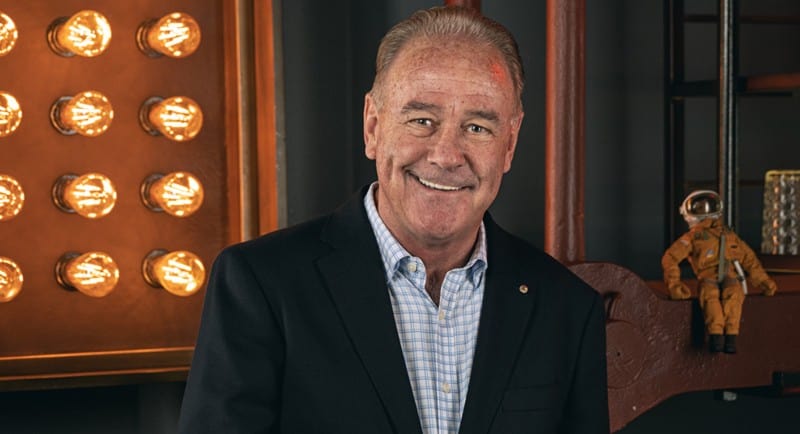
Barry O’Brien: Going for gold with the Matildas
By Barry O’Brien OAM, chairman, Atomic 212°
Later this month, one of the biggest events on the global sporting calendar kicks off with the start of the 2023 FIFA Women’s World Cup. Held in Australia and New Zealand for the first time, it will be THE biggest event in our country this year and will have a positive impact on football, sport in general and the community. For marketers, the competition represents a fantastic opportunity to be part of a big event, show their support for women’s sport, reach big and engaged audiences, and be part of the national conversation.
From the opening ceremony and first match at Eden Park in Auckland on 20 July to the final at Stadium Australia in Sydney on 20 August, the competition will captivate Australia and the world, as 32 nations compete across 64 matches for the highly-coveted title. The world’s largest women’s single-sport event will take place in nine host cities and 10 stadia across Australia and New Zealand, marking the first time it has been played in two nations.
With more than one million tickets already sold – more than were sold for the previous FIFA Women’s World Cup in France four years ago – this will be big. It will be a history-making event for both football and sport in general. It will unite Australia, and not just because we will be cheering on the Matildas as they chase the Cup.
The FIFA Women’s World Cup also promises to be a game changer for women’s sport in Australia. As Sam Kerr and the Matildas take to the pitch – and hopefully bring home the Cup – all Australians will be engaged. In particular, young girls will be captivated by our amazing players and, hopefully, inspired to get active and healthy.
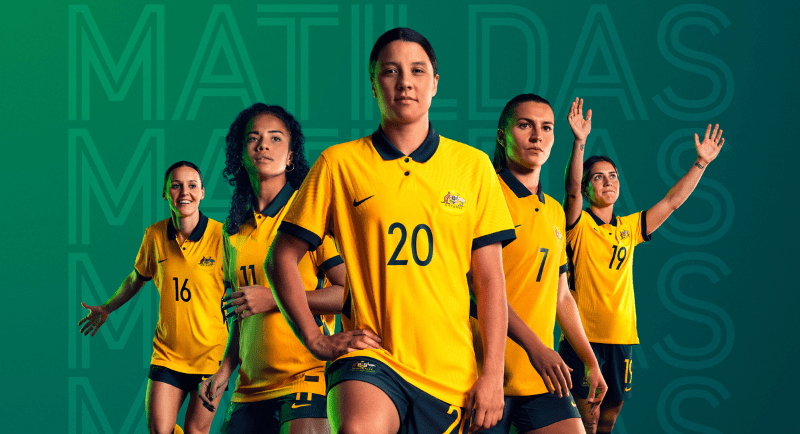
The rising popularity of women’s sport – AFL, NRL, cricket and others – will be boosted significantly over the next month or so. The final of the Women’s T20 World Cup between Australia and India at the MCG in 2020 proved the popularity of women’s sport. The Matildas have become a national treasure in recent years and the FIFA Women’s World Cup will shine a huge spotlight on these wonderful, world-class athletes.
Australians love a big sporting event and the FIFA Women’s World Cup will be both a big sport and cultural event. Football is arguably the most multi-cultural sport and many Australians will be cheering on both the Matildas and teams from the countries they or their parents or grandparents were born in.
For corporate Australia, the competition represents a powerful way to be part of a big event, show their support for women’s sport, and be part of the national conversation.
The opportunities for marketers to get on board are immense. The television and online coverage of the FIFA Women’s World Cup on Optus and Seven will be exciting, world-class and very popular. Seven, which has sub-licensed its rights from Optus, and Optus Sport have developed a range of innovative plans to ensure Australians have the best possible coverage of the entire 64-game tournament.
Bringing brands close to big cultural moments is a proven revenue driver and a powerful way to cut through the marketing clutter. At a time when consumers are reining in their spending, marketing campaigns tied to sport are an effective way to engage them and raise the profile of a brand.
The FIFA Women’s World Cup will be a landmark event in Australia this year, a defining moment in Australian sporting history and an inspiration for Australians. We should all be very excited about it. And, go Matildas!
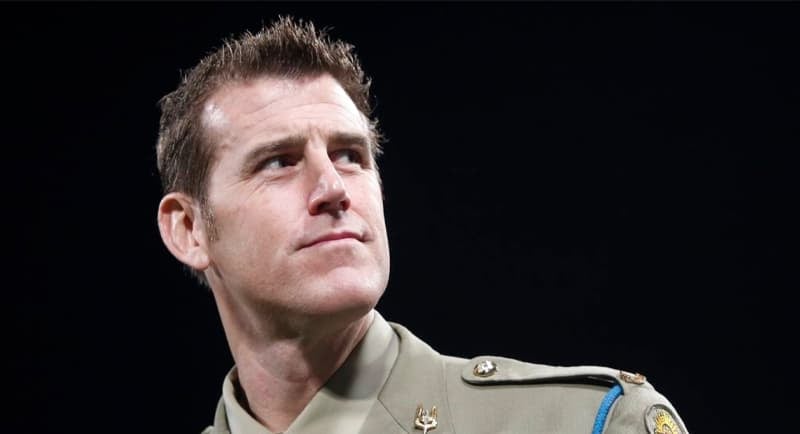
Ben Roberts-Smith to appeal defamation lawsuit loss
Ben Roberts-Smith has launched an appeal after losing his war crimes defamation trial against Nine Newspapers last month. The appeal was filed on Tuesday, two days before the deadline.
In a statement, James Chessell, Nine’s managing director, publishing, said “We believe the Federal Court’s judgment is comprehensive and categorical. The appeal will be opposed. We will always stand up for journalism that is in the public interest.”
The move comes after Roberts-Smith had agreed to pay Nine’s legal costs.
“Mr Roberts-Smith accepts he should pay costs of the proceedings … but it remains in dispute whether he pays prior to March 17, 2020, on an indemnity basis,” Nine’s barrister, Nicholas Owens SC said in court in June.
March 17, 2020 was the date that Roberts-Smith rejected a settlement offer from Nine.
The Australian has been reporting, however, that Seven West chairman, Kerry Stokes, is disputing his liability. When The Australian reached out for comment, a spokesman for Stokes declined to comment.
While no exact number has been made public, the legal bill is being reported to be somewhere between $25m and $35m.
See Also: Kerry Stokes to fight legal costs as Ben Roberts-Smith agrees to pay
Ben Roberts-Smith, a Victoria Cross recipient and former SAS soldier, had been suing the Age, the Sydney Morning Herald, and the Canberra Times in regard to a series of 2018 articles that he says defamed him. As well as the papers themselves, Roberts-Smith has taken action against journalists Nick McKenzie and Chris Masters, and former journalist David Wroe. The articles alleged that he had committed murder and other war crimes during his deployment in Afghanistan.
Justice Anthony Besanko found in his final judgement that Roberts-Smith was “not an honest and reliable witness,” and that he had “motives to lie” when presenting his side to the court.
A date for the appeal to be heard has not been announced.
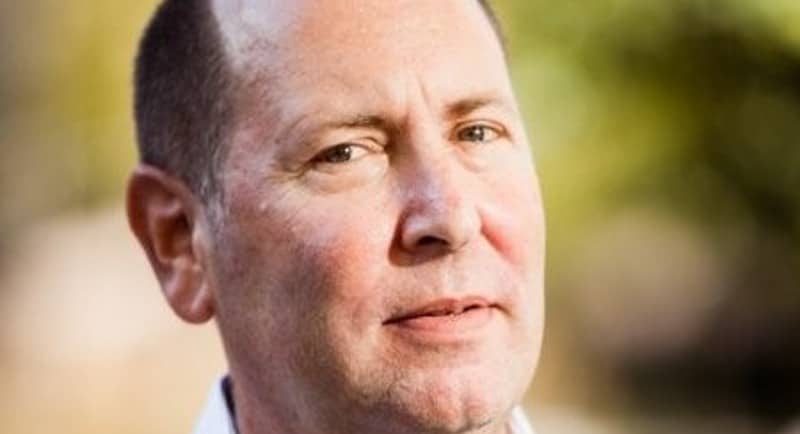
Top Google engineering exec leaves due to “unstable commitment and vision”
Google has lost its former head of operating systems on the augmented reality team, as Mark Lucovsky announces his departure from the business, saying that he had “decided to step away” from his role.
Writing on LinkedIn, Lucovsky says that “The recent changes in AR leadership and Google’s unstable commitment and vision have weighed heavily on my decision.
“Moving forward, I am eager to explore opportunities that allow me to further advance Augmented Reality technology and its intersection with generative AI. I approach the next chapter with enthusiasm and anticipation for the exciting possibilities that lie ahead.”
Lucovsky was responsible for the design and delivery of the operating system and software platform for Google’s AR and XR devices.
He had made his return to the search engine in December 2021, working on the now-shelved Project Iris AR glasses – he had previously worked at Google as engineering director between 2004 and 2009. Lucovsky’s resume also includes companies like Microsoft, VMware, and Oculus VR.
Lucovsky’s departure comes after an announcement from Google in January of this year, that it would be letting go of 12,000 staff from its offices around the world in response to an economic downturn.
Sundar Pichai, CEO of Google and parent company Alphabet, said in a statement on the tech company’s website that “This will mean saying goodbye to some incredibly talented people we worked hard to hire and have loved working with. I’m deeply sorry for that.
“The fact that these changes will impact the lives of Googlers weighs heavily on me, and I take full responsibility for the decisions that led us here,” Pichai admitted.
Looking ahead, however, Pichai said that “I am confident about the huge opportunity in front of us thanks to the strength of our mission, the value of our products and services, and our early investments in AI. To fully capture it, we’ll need to make tough choices.”
–
Top Image: Mark Lucovsky
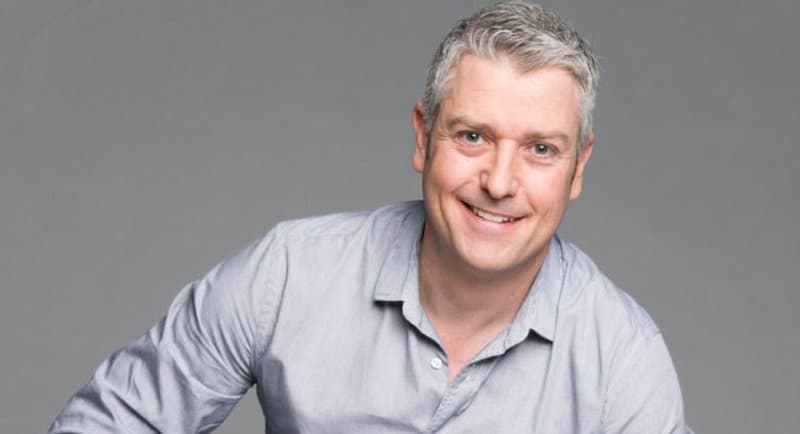
Dave Cameron praises SCA’s efforts as the network delivers 6.167 million listeners in Survey 4
SCA chief content officer Dave Cameron has praised the efforts of the network on growing its national audience in Survey 4 results.
“Survey 4 has delivered more record results for SCA today, with our national audience growing again to our highest ever of 6.167 million listeners and continuing to dominate our core 25-54 All People target,” he said
“Adelaide’s Triple M has increased its market dominance with a record highest share ever for both Roo, Ditts and Loz at Breakfast and the station overall. Likewise, Triple M Brisbane also today has achieved a record audience cume, alongside B105 delivering the No.1 Breakfast show yet again in Brisbane with Stav, Abby and Matt. The Fox continues to have the most listeners in Melbourne, with more than 1.3 million weekly listeners, and the Fifi, Fev and Nick Breakfast show is now only 0.2 points off being the No.1 FM station.
“It’s also been a pleasing day to see great growth at Triple M Perth that is only a few years old in that market, in addition to The Marty Sheargold Show on Triple M Melbourne increasing its Breakfast share result today,” he added.
Cameron concluded: “SCA’s strong results today reflect the absolute strength of our talent and shows, that continue to engage and entertain record audiences across Australia and power SCA has as Australia’s biggest content creator for live and on-demand content.”
In Sydney, breaking the tie that 2Day FM found itself in with Triple M in the last survey, the SCA station has dropped 0.1 points for a 5.2% share.
The Breakfast Shift with Hughesy, Ed and Erin was down 0.6 for a 4.7% share. In Drive, Carrie and Tommy were up 0.2 points for a 5.8% share.
See also: Sydney Radio Ratings 2023 Survey 4: Ben Fordham and 2GB reclaim their crown
Meanwhile in Melbourne, Fox is enjoying its third of four 2023 surveys over 9%. Breakfast with Fifi, Fev and Nick is getting oh-so-close to knocking off Gold in breakfast.
While Fox has had slightly bigger breakfast shares recently, the gap between the two FM leaders hasn’t been so small for some time. Fox last ranked #1 breakfast in 2019.
See also: Melbourne Radio Ratings 2023 Survey 4: 3AW and Gold on top; Nova, smoothfm & Triple M brekky up

Radio time spent listening increases by 54 minutes a week compared to 2022
The latest GfK Radio Ratings Survey Four shows that people spent 54 minutes more time listening each week than in 2022. The average person aged 10+ listened for 13 hours and 25 minutes per week, with younger people tuning in for longer and weekend listening also increasing.
See Also: Radio Ratings 2023, Survey 4: Highlights + Full Results
Nearly 88% of people aged 10-24 listen to commercial radio each week, for an average of 10 hours and 15 minutes – an increase of 1 hour and 39 minutes compared to a year ago.
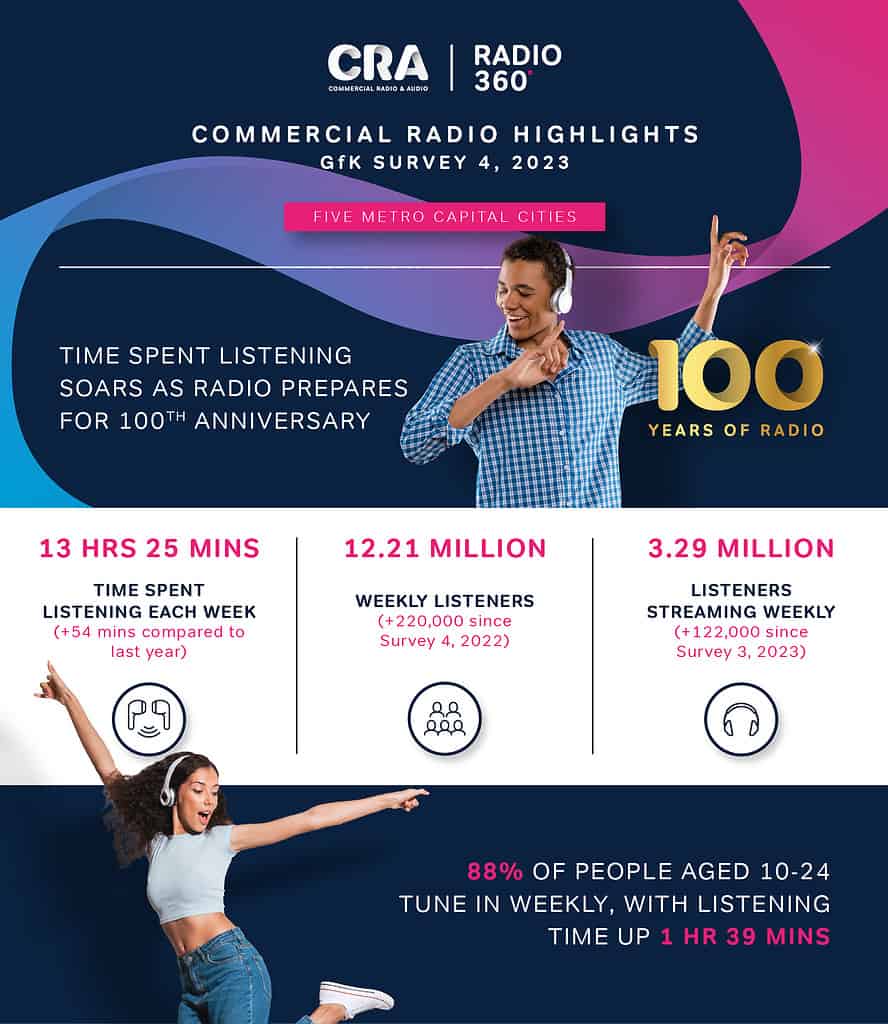
Ford Ennals, CEO of industry body Commercial Radio & Audio, said the results were a confirmation of radio’s continuing value to the community.
“Commercial radio is preparing to celebrate 100 years on air in Australia this year and we want to thank our listeners for their loyalty and for tuning in every day. Radio was the original live social medium, inspiring talk and connection, and these results demonstrate its timeless appeal across all age groups.
“Breakfast continues to be the powerhouse but it’s great to see audiences reaching all-time highs for afternoons as well as for listening at work.”
Overall, Survey Four showed commercial radio reached 82% or 12.21 million people each week across the five major metro markets, with 220,000 more people tuning in this year than last.
Breakfast attracted nearly 8.62 million listeners, a growth of 4.9% year on year.
Afternoon audiences reached a record high of 7.98 million people, while the number who listened at work also reached a record high of 2.56 million with a big jump of 466,000 new listeners compared to Survey 4, 2022.
The number of listeners streaming commercial radio each week grew to 3.29 million, up 122,000 since the last survey. Streaming data was released for the first time with the launch of the new GfK Radio 360 hybrid survey system for Survey Three, 2023.
Nearly 27% of commercial radio listeners streamed radio weekly in the current survey period, for four hours on average. The majority of time spent streaming takes place at home.
The commercial radio industry will celebrate 100 years of radio at the Australian Commercial Radio & Audio Awards, which will be held in Sydney on October 14.
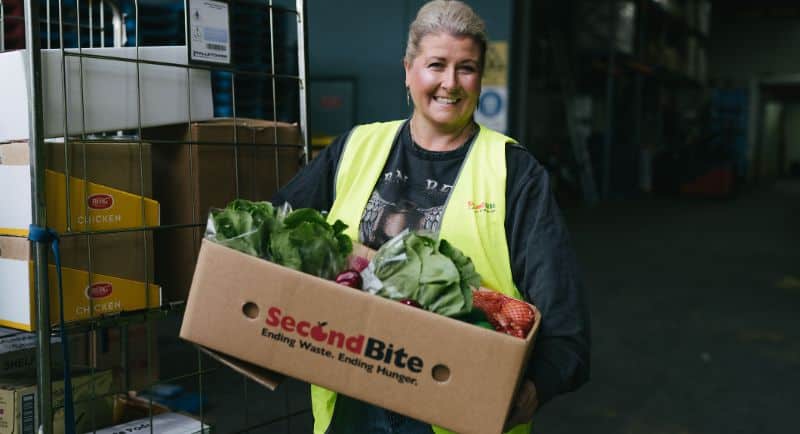
News Corp Australia supports SecondBite’s annual Winter Appeal for a second year
News Corp Australia’s food network, including leading food media brand taste.com.au, has lent its support to food rescue organisation SecondBite’s annual Winter Appeal for the second year.
SecondBite’s Winter Appeal, in partnership with Coles, begins today, and the media company’s food brands have launched an editorial campaign supporting the charity initiative, highlighting its work and encouraging consumers to donate and help feed those in need.
SecondBite receives excess food from retailers, growers and manufacturers, and distributes it to more than 1,100 charities and non-profit organisations across the country to support Aussies doing it tough this winter.
News Corp Australia’s community ambassador Penny Fowler said: “In the face of community-wide economic challenges, where the cost-of-living pressures weigh heavily on so many, SecondBite’s work has never been so important. Their remarkable and innovative food rescue efforts support those in need.”
News Corp Australia’s editorial director of mass food Brodee Myers-Cooke said: “For all of us at taste.com.au, and across News Corp Australia, SecondBite’s Winter Appeal and Christmas Appeal in Coles supermarkets are a really important part of our year.
“With each Appeal, it seems our work in spreading the word about SecondBite is even more vital, but we all agree this year is the most critical yet,” Myers-Cooke said.
“In fact, SecondBite’s national branches are reporting they’re seeing so many more people – even working families – asking for help as they struggle to put dinner on the table.
“It’s often hard to know how you, as an individual, can somehow make a difference. One of the many things we appreciate about SecondBite is that even a small donation goes a long way. This is partly thanks to businesses such as Coles who, every day, help SecondBite turn quality food that would otherwise go to waste into meals for Australians in need.
“And the SecondBite Winter Appeal makes it so easy. Just by grabbing a $2 Winter Appeal donation card, available from Coles checkouts until July 25, you’ll be providing up to 10 meals for people doing it tough this winter.”
Coles has provided the equivalent of more than 200 million meals to help Australians in need since partnering with SecondBite in 2011.
All donations go directly to SecondBite to help the charity rescue and distribute food to vulnerable people in need.
Australians can support the SecondBite Winter Appeal by purchasing a $2 donation card or by making a donation of their choice at Coles supermarket checkouts from today until July 25; or by making a donation at any Liquorland, First Choice Liquor or Vintage Cellars stores until August 01.
–
Top image: SecondBite staff member
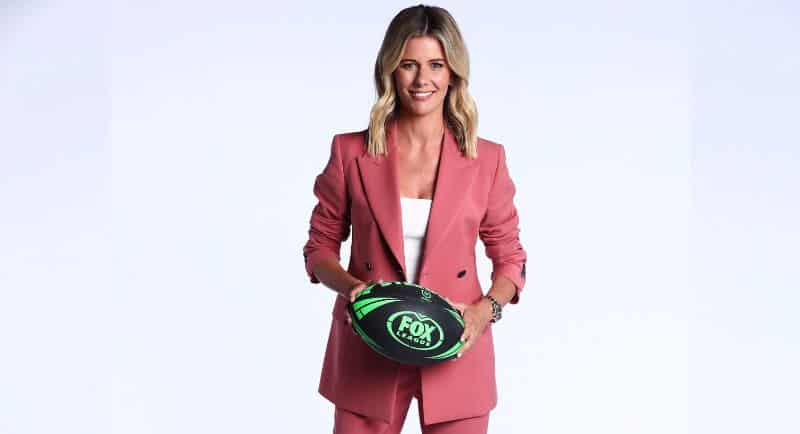
Fox League announces launch of NRLW on Fox hosted by Lara Pitt
Fox League has announced the launch of a new Thursday night show to help unpack and analyse a huge 2023 NRL Telstra Women’s Premiership season.
NRLW on Fox is a 30-minute program hosted by Lara Pitt that will focus on NRLW players and their stories, giving great access and insight to fans.
The debut episode of NRLW on Fox will air on July 20 and will feature superstar players and Fox Sports ambassadors Tiana Penitani and Jessica Sergis.
The first match of the season kicks off on Saturday, July 22, with a new Queensland derby between the Titans and competition newcomers the Cowboys before 2022 premiers Newcastle take on St George Illawarra.
NRLW will look different this year, with nine rounds and doubleheaders each week.
Fox League, available to watch on Foxtel and stream on Kayo Sports, is the home of Rugby League, with every game of the 2023 NRL Telstra Women’s Premiership season, including the Finals and Grand Final, available LIVE and ad-break-free during play.
The 2023 NRL Telstra Women’s Premiership Grand Final will be played before the men’s decider on Sunday, October 1.
The launch of NRLW on Fox comes after Medianet uncovered interesting data on the sports media industry and the women working in it based on a month-long analysis of the sports media landscape during January 2023.
The research from the media company provided a snapshot of the time that aimed to identify the number of women reporting in the sports industry and the frequency of female sports coverage.
Medianet found that of the female journalists in Australian mainstream sports media 17.4% were female in contrast to 82.6% male journalists. Meanwhile of the sport articles, 15.1% were written by female journalists while 84.9% were written by male journalists.
See also: Medianet reveals less than 20% of sports journalists in Australian mainstream media are women
–
Top image: Lara Pitt
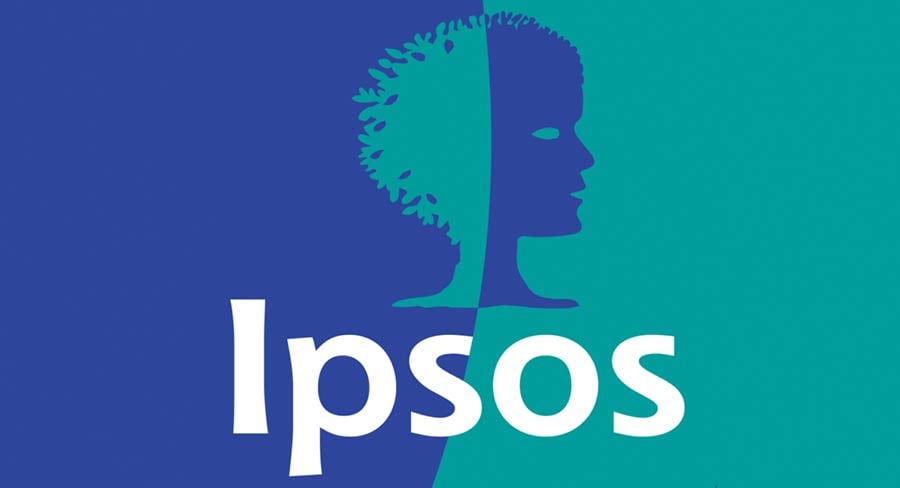
Ipsos survey reveals Australians are the most nervous globally about AI
The new Ipsos Global Advisor survey has revealed Australians are the most nervous about AI of any country globally.
The survey, which examined responses to AI across 31 countries, showed Australia was the top country worldwide to be worried about AI, with 69% of respondents saying they felt nervous about the technology.
Globally, more than half the respondents (52%) said they were nervous about AI – a significant increase on the previous Ipsos survey, conducted 18 months ago.
Just 40% of Australians said they were excited about AI, well below the global average of 54%.
Majorities in all 31 countries expect AI-powered products and services to profoundly change their daily life in the coming years. While there is optimism about time management and entertainment options, there is also widespread concern about negative impacts on employment.
The sentiment is similar in Australia: nearly a third of Australians think AI will replace their current job, while only a quarter of people think AI will be good for the economy; even less (20%) think it will be good for the job market.
Despite a surge in new AI applications, the percentage of Australian adults who say they know or understand the types of products and services that use AI remains well-below the international figures.
Globally, half of respondents of the Ipsos survey said they know what products and services use AI; Australians fell well below that at 38%. Additionally, two in three Australians (59%) said they had a good understanding of AI, which was also below the global average of 67%.
However, one constant across the board is the divide between generally AI-enthusiastic emerging markets and AI-wary high-income countries. Trust and excitement about AI also tends to be higher among younger generations, especially Gen Z, and among those with a higher income or education levels.
In Australia, only 44% of respondents said they trusted AI, and only 38% think it will protect their personal data.
David Elliott, Ipsos Australia director, said: “Australians are overwhelmingly nervous about the rapid evolution of AI and the impact it will have in the coming years on the domestic economy and the job market. AI has long had an image problem in Australia – people are generally afraid of it, don’t understand it and how it works, and are worried about the safety and security of their personal data. There’s a need for mass education around the technology, particularly its potential in increasing workplace efficiencies and improving day-to-day life.”
These are some of the findings of a survey of 22,816 adults under the age of 75 conducted between May 26 and June 9, 2023, on the Ipsos Global Advisor online survey platform in 30 countries and mostly face-to-face in India. The survey results shed light on the evolving perceptions and expectations of AI among consumers worldwide, revealing both excitement and apprehension about its potential impact on various aspects of life.
Detailed findings:
Understanding of AI is still lagging
On average across the 31 countries surveyed, two-thirds (67%) say they have a good understanding of what AI is, but only half (51%) say they know which products and services use AI.
Knowledge of what products and services use AI is higher among younger adults, men, those who are employed, more educated, and/or more affluent.
In a typical pattern, familiarity with AI-powered products and services ranges from over 70% in Indonesia and Malaysia to just 35% in Belgium, New Zealand, and the United States.
Reported understanding of AI has increased slightly over the past 18 months, but familiarity with which products and services use AI has barely changed since Ipsos’ previous global survey on AI in December 2021. This suggests that, while AI is becoming more prevalent, there hasn’t been a corresponding increase in consumer awareness of the role AI plays in different technologies they use daily.

Mixed feelings and increased nervousness
On average across the 31 countries, only about half of respondents agree that AI-based services have more benefits than drawbacks (54%) and are excited about them (also 54%).
However, about the same number (52%) are nervous about AI-based products and services. Across the 24 countries included in both the previous and new surveys, this represents an average increase of 12 percentage points. This suggests that the global public is increasingly concerned about being negatively impacted by AI technology as it evolves.
Excitement about AI is highest in emerging markets and lowest in Europe and North America; it is also higher among Gen Zers and Millennials, as well as the college-educated.
Nervousness is highest in all the predominantly English-speaking countries. It is lowest in Japan, South Korea, and Eastern Europe.

Wide geographic differences in trust
Trust in AI varies widely by region, generally being much higher in emerging markets and among people under 40 than in high-income countries and among Gen Xers and Boomers.
People’s trust that companies using AI will protect their personal information ranges from 72% in Thailand to just 32% in France, Japan, and the United States. The percentage of people who trust that AI will not discriminate against groups of people shows an even wider spread across countries.

Just half say AI has impacted their life in the past few years…
Globally, just half (49%) say AI-based products and services have significantly changed their daily lives in the past three to five years, about the same percentage as in December 2021.
In South Korea and across Southeast Asia, the percentage feeling this way is about 35 to 40 percentage points higher than in most countries in Northwestern Europe and North America.
It is also, on average, at least 20 points higher among Gen Zers and Millennials than among Boomers.
… but two in three expect it will soon change it profoundly
On average, 66% agree that AI-powered products and services will significantly change their daily life in the next three to five years, including majorities in all countries (from 82% in South Korea to 51% in France) and all demographic groups (but especially among the more affluent and those with a college education).
Among workers, 57% expect AI to change the way they do their current job and 36% expect it to replace their current job.

The percentages of workers expecting each type of disruption are highest in Southeast Asia and lowest in Northern Europe (with differences of up to 50 points) and are also much higher among those who are younger and/or decision makers than among those who are not.
Not all changes are expected to be for the better
Globally, slightly more than half expect that increased use of AI will give them more time to get things done and improve their entertainment options.
Only one in three or slightly more say it will improve their health, their job, and their country’s economy.
More say it will make the job market worse than better.
Again, optimism about AI is much higher in the global South than in high-income countries, and among younger and highly educated adults than among those who are older or have no college education.

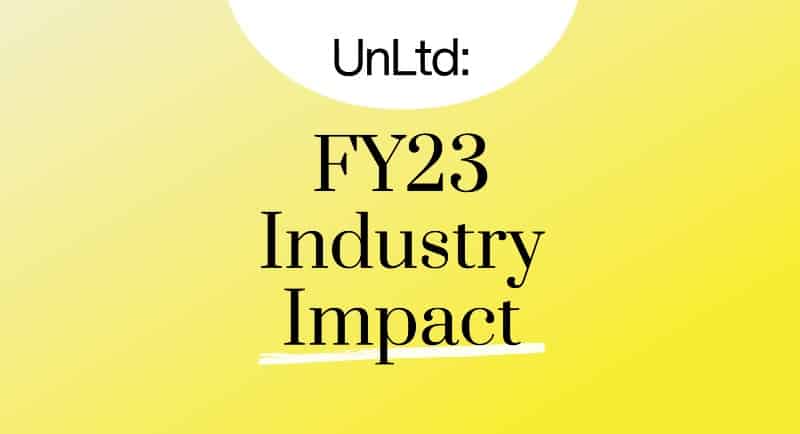
UnLtd reveals record-breaking social impact result for the industry
UnLtd has announced that the record-breaking total social impact value generated by the industry in FY23 through UnLtd was $69,996,449 – the biggest impact recorded since UnLtd started in 2005.
Chris Freel, CEO of UnLtd said: “We are so grateful to the industry and all our partners who have got behind our charities and campaigns and helped us to create this incredible positive impact for young people at risk. The last few years have not been without their challenges and it’s fantastic to see that even when times are tough, our industry is fully committed to making a positive difference in the world.”
The social impact value measures monetary donations made to UnLtd and its 26 charity partners, skilled and unskilled volunteering hours, goods donated, and media donations made to support UnLtd and its charity partners.
Jade Harley, director of partnerships at UnLtd said: “Over the last 12 months we have launched multiple new social impact partnerships and have recorded major growth for our campaigns in market. We’ve seen the industry throw their support behind our ‘Big Bet’ campaigns, not only helping to raise major funds for our charities but also creating positive behavioural change on important social issues. Campaigns like Boys Do Cry have increased help seeking for mental health issues in men and boys and the campaign for Dolly’s Dream, which is helping to break the silence around bullying.”
The industry support for the campaigns not only benefits the charities with an instant fundraising uplift but it also helps UnLtd’s charity partners to raise awareness of key issues and their brand at mass scale, resulting in long term benefits.
Bronwyn Sheehan, founder and CEO of The Pyjama Foundation said that the support of the industry was crucial for their organisation.
“With the long-term partnership UnLtd has facilitated with OMD, and the incredible support that OMD rallies from their media partners, National Pyjama Day has grown into a major nationwide fundraising date in the calendar, helping us raise over $800K last year. Not only are we raising more funds, we are getting recognised more widely which is helping us to reach new targets and donors, giving us the chance to instill the love of learning in more and more children in foster care each year.”
The UnLtd FY23 Impact report reveals that over 7,838 hours of volunteering were recorded across the industry, a large majority of these being skilled volunteering. 4,437 people attended the 27 annual UnLtd fundraising events ranging from golf and cricket to surfing and dodgeball.
FY23 also saw UnLtd expand to New Zealand and the industry’s social enterprise, MOOD tea, launch at Woolworths across the country.
Freel added: “It’s been exciting to see a product that this industry initiated, designed, packaged, tested and marketed, hit the shelves of Woolworths across the country. In FY23, we have sold over 1.3 million tea bags and MOOD has now funded mental health programs reaching over 800 young people. Looking forward, we are aiming to grow MOOD’s impact in new channels so if you know anybody who is in the market to buy tea then please let us know. MOOD is a great example of the positive impact our industry can have when we use our skills for good.”
The highlights of the industry’s social impact can be found at the UnLtd FY23 Impact Report.
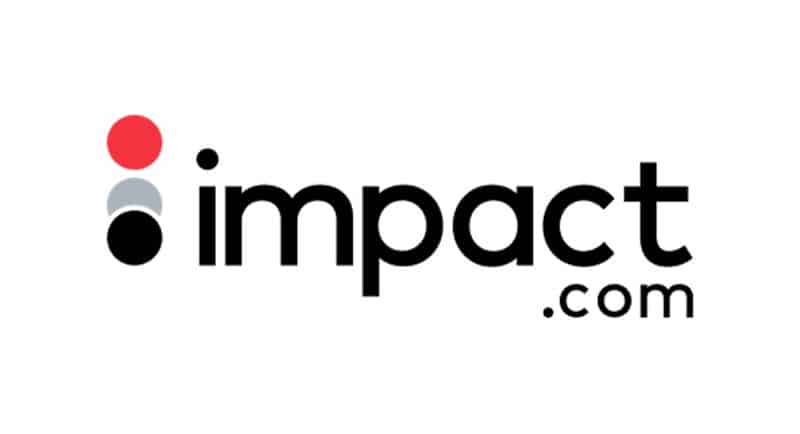
impact launches influencer and creator partnership management platform
impact.com announced the launch of impact.com/creator, an influencer marketing platform that allows advertisers to discover, create, manage and scale full-funnel influencer marketing programs from a single interface.
The new technology from the partnership management platform simplifies and improves the user experience for both brands and creators.
The creator economy is estimated to be a more than $100 billion market. Given the sizable creator landscape, marketers say that finding the right partners and evaluating creators against their needs are among their biggest challenges today.
According to impact.com, research also announced today that the same pain point exists for creators. Eighty-six per cent of creators say that while they want to expand brand partnerships with selective criteria, it’s challenging to identify quality prospective brand partners that will work long-term.
impact.com/creator brings creators and brands together in a single platform to discover new partnerships, contract, manage, pay and optimise those partnerships based on comprehensive performance insights.
The technology provides a marketplace for brands to find new partners based on filters such as geographical location, social platform, follower size, vertical, and soon, AI-based recommendations and more. The two-sided nature of the platform also allows creators to seek out brand collaborations.
This empowers brands and creators to collaborate efficiently and view performance in one easy-to-use platform. Now everyone, from CMOs and VPs to managers and coordinators, can better understand the incremental awareness and revenue that their partnerships are driving.
David A. Yovanno, CEO at impact.com, said: “We recognise that marketers require innovative technology to stay ahead of developments within the fast-paced creator economy, which is why we’ve created an industry-first creator partnerships management platform.
“Creators are a critical and expanding part of our industry, and with impact.com/creator, we are enabling clients not only to scale these partnerships, which is notoriously difficult, but also to help establish longer-term relationships. But first, brands must know what’s working, and tracking and performance insights are where impact.com has been leading the market for some time.”
Now, with a single login and integrated interface, brands can drive optimal customer journeys from the awareness stage through to conversion. Brands can also diversify their partner mix and compensate them with a variety of models, from CPA and commission to flat fees or combinations of both.
According to impact.com’s new research conducted in partnership with AdWeek, the majority of creators prefer to be paid with a combination of flat fee and performance bonus, known as a PostPlus compensation model; until now, the industry hasn’t offered flexible, scalable payment options in one interface.
With impact.com’s new offering, brands and creators will:
• Discover best-fit partners: Brands can recruit qualified influencers to promote their products by searching and filtering through an opt-in marketplace of highly vetted creators. They can view performance metrics across all social platforms and manage influencer collaborations in one place. Creators can start working with brands and earning income immediately by searching for campaigns that align with their interests and values.
• Pay out faster with more flexibility: With automated contracting, brands and creators can choose between flexible and diverse payout models, such as commission or other performance-based payment model, flat fee or any combination of both, based on contract terms that are put in place. Creators also receive the fastest payouts in the industry, processed as fast as the next day.
• Manage end-to-end campaigns with full transparency: Brands and creators can negotiate flexible contract terms, automate task reminders and payouts, usage rights and more. The user-friendly interface and intuitive tools also make it easy to manage and scale partnerships efficiently.
• Track, analyse and attribute performance accurately: Brands and creators gain best-in-class performance tracking and reporting, get access to first-party creator data and view detailed performance insights, including engagement, demographics, conversions and attribution. Users can see how their content is performing and which posts or videos drive the biggest impact so they know where to focus their efforts.
• Access to more dynamic content management: Brands and agencies can store, review, share and amplify influencer content directly from their impact.com account. Creators can also easily store and share published content, assets, and creative for their brand partners across all social networks.
In addition, enterprise clients who are looking for a fully customisable environment where they can collaborate directly with influencers and creators to meet their specific program goals also have access to a Branded Creator Portal. An example of this was recently announced with the launch of Walmart Creator.
Chloe Wen, Nashville lifestyle influencer and YouTuber, said: “Now, with impact.com’s new influencer and creator platform, content creators like me will not only have access to brand relationships but also the ability to get eyes on more detailed analytics. This makes it easier to see how partnerships perform and provides the data to help approach other brands moving forward.”
“I’m also really excited for the marketplace to be open to creators, letting them directly submit applications to partners and have the opportunity to change the scope of work like post dates, usage terms, and deliverables. All of these features will be of great value to both creators and brands, making what we hope to be intentional and seamless partnerships.”
These new capabilities cement impact.com’s position as the most comprehensive partnership suite in the market — one that drives efficient workflows, removes manual processes and allows teams to track and report on progress and KPIs across the full funnel.
“As someone who has been in the creator management business for the last ten years, I’ve worked with countless creator platforms and impact.com/creator takes into consideration what is and isn’t working,” said Becca Bahrke, CEO of Illuminate Social, a creator management and brand partnerships company that has partnered with impact.com for more than six years.
“I’m thrilled to see the negotiation options from creator fee to usage, as this is the most important part of my job as a manager and bringing fruitful partnerships to our roster of creators. There is no ‘one-size-fits-all’ package, and while that would be easier if every creator agreed to the same terms and rates, it’s not realistic.
“impact.com/creator takes that into account while still providing the best data and metrics for a brand to evaluate if a partnership was impactful. The future of influencer marketing is where influencer and affiliate merge and this platform truly brings the two together,” Bahrke added.
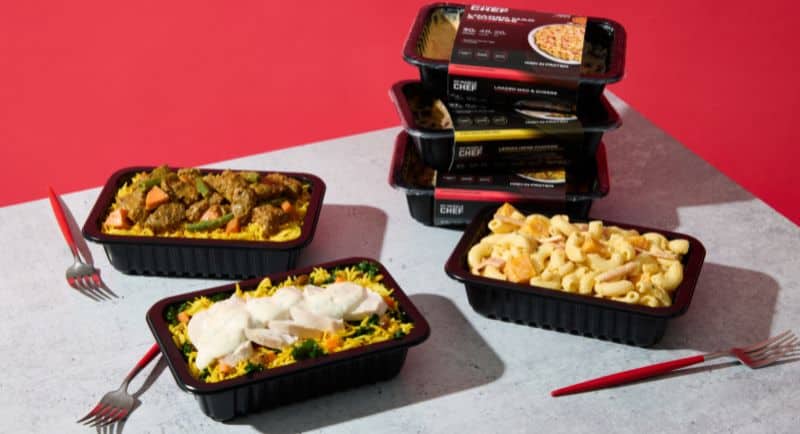
Atomic 212° is appointed to the My Muscle Chef account
Atomic 212° has announced it has been appointed to the media strategy, planning and buying account for My Muscle Chef, effective immediately.
Established by CEO Tushar Menon in 2013, My Muscle Chef’s fresh ready meals have helped millions of Australians lose weight, hit their fitness goals and feel healthier inside and out.
In recent years, it has taken its meals from frozen to fresh, launched into multiple high-protein snacks and drinks categories, and has been awarded Product Review’s best food delivery service six years in a row. It now sells more than 100 high-protein meals, soups, snacks and drinks direct to consumers and offers a convenience focussed range through retailers.
The independent media agency will add new staff to its Sydney office to look after the My Muscle Chef account, which will be led by Sascha Bonomally, Ashleigh Carter and Will Ridley.
Menon said: “It’s an exciting period for My Muscle Chef as we look to extend our leadership in the fresh ready meal category. Building on our brand strength among fitness audiences, we’ve accelerated the growth in retail distribution to over 5,000 stores to service a much broader, health-conscious convenience shopper beyond our core goals focussed e-commerce customer.
“We are excited to be partnering with Atomic 212° to drive growth across online and retail channels further. We were really impressed with their approach to holding all media accountable for its impact on revenue and profit over the short and long term across the full customer journey.”
Claire Fenner, Atomic 212° national chief executive officer, said: “This is a fantastic achievement and we are delighted to partner with a data-driven client at the forefront of its category. We have a smarter, faster and accountable media model centralised by effective media, and this partnership will deliver on this ethos.
“Once again, our unique performance DNA has been brought to life by a wonderful team including Sascha, Ashleigh and Will, who have led a team to deliver outstanding strategic thinking.
“The My Muscle Chef appointment reflects the innovation and energy the team put into this project. We look forward to achieving great success,” she said.
The agency’s new partnership with My Muscle Chef follows a period of strong growth at Atomic 212° nationally, including the expansion of its Brisbane office; several new hires in its Sydney and Melbourne; a string of recent client wins including Craveable Brands, Ladbrokes, Neds, Zambrero, Sydney Water and Ponant; and its reappointment to the Northern Territory Government and Tourism Northern Territory accounts.
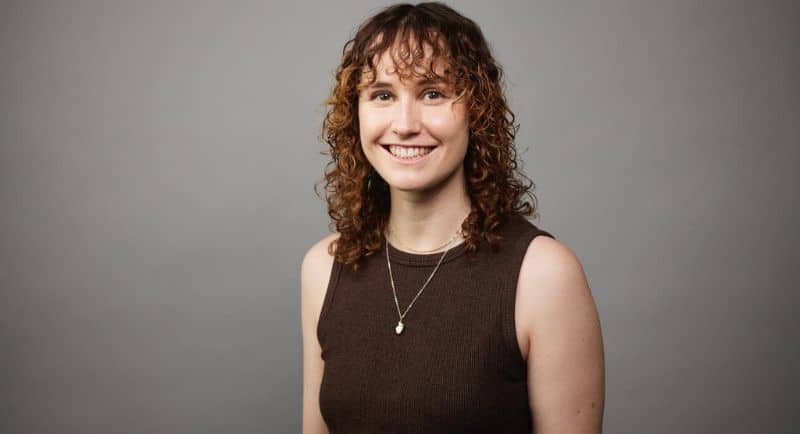
Mindbox welcomes Ellen Rafferty as business manager
Mindbox has bolstered its leadership team by appointing ex-IPG Mediabrands national director Ellen Rafferty.
As business manager, Rafferty will be tasked with expanding the independent marketing consultancy’s service offering to both existing and new clients, as well as assisting founder and CEO Nic Halley with the day-to-day running of the business.
Prior to joining Mindbox, Rafferty was the national director, Data, Platforms and Operations at Kinesso part of IPG Mediabrands.
During her tenure with Kinesso, she worked on brands such as Coke, Nestle and HBF, as well as playing an integral role in setting up and leading the Australian Government’s digital operations process, aligning them to the industry’s brand and data quality best practices.
She has also worked with industry bodies and internally across IPG Mediabrands to standardise the best technologies and approach to protect advertisers’ brand safety, privacy, ad fraud detection and ad quality measurability across the spectrum.
The appointment follows a string of recent hires, a new business win and a broadening across Mindbox technology advisory and data services products.
Nic Halley, founder and CEO of Mindbox, said: “Ellen is a key senior hire for us. She brings with her a wealth of knowledge and experience in developing and implementing client tailored solutions across the pillars of media, measurement, platforms and personalisation. Her proactivity, attention to detail and her knowledge on industry issues such as data privacy regulations, will help ensure we continue to create meaningful and innovative solution for our clients.”
Ellen Rafferty, business manager at Mindbox said: “Mindbox has an incredible reputation in the region, particularly for its ability to harness data and insights to create and develop strategic marketing campaigns, so I’m delighted to be joining such a talented and dedicated team. I can’t wait to leverage my experience working with data and technology to further advance client results, helping to build on the success of the business to date.”
Mindbox has over 23 years of specialisation across digital consulting and media services. It works with local brands including HCF, Australian Payment Plus (eftpos), Petsure and Teachers Health; as well as global brands across the ANZ region such as DHL.
–
Top image: Ellen Rafferty
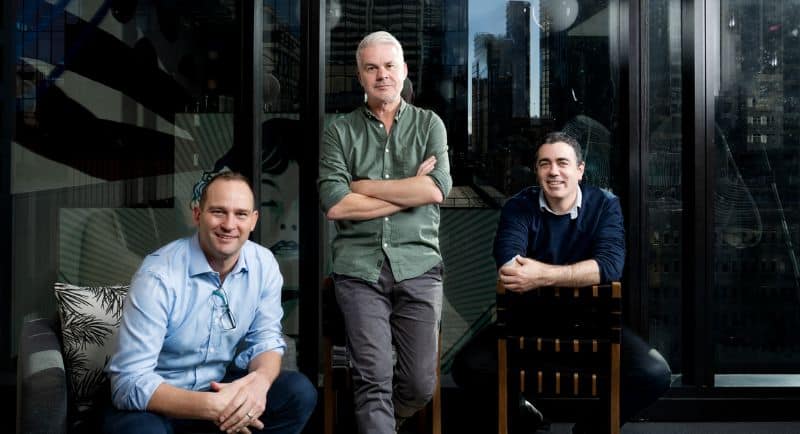
Fabulate board welcomes former Facebook MD Liam Walsh
Fabulate has announced the appointment of Liam Walsh to the board of the Australian content marketing platform as it prepares to expand its offering into the APAC region.
The senior digital media executive is a former managing director of Facebook in Australia and who rose to the important role of Facebook’s Preferred Marketing Developer (PMD) for JAPAC, overseeing the platform’s tool to assist advertisers run marketing and advertising across the region.
More recently, Walsh was programmatic platform Amobee’s managing director between 2015 and 2021 and has and has a long history of publisher and agency side leadership.
Toby Kennett, CEO of Fabulate, said: “It’s fantastic for us to have Liam join the board of Fabulate. Liam brings more than two decades of digital marketing expertise in some of the most senior roles within both the Australian and APAC online ecosystem and joins at a pivotal time for us as we chart a course for expansion into the wider region.”
Walsh said of joining: “I am stoked to work with this team of passionate, curious, and diligent team of people. Fabulate is a platform that solves the meaningful problem of how to take advantage of the influencer and content creator opportunity, and to do so with better outcomes than most are achieving now.”
The board appointment is a significant coup for the Australian social and content marketing workflow platform which recently celebrated the four year anniversary, since its founding. It also comes after Fabulate’s successful expansion in 2022 into the New Zealand market.
Ben Gunn, chief revenue officer of Fabulate, said: “Over the past four years Fabulate has established a key place in the Australian / New Zealand influencer and content market space and been recognised as a leader in helping brands create powerful and meaningful content – content that cuts through.”
“Liam’s expertise and guidance to our executive team as we seek to take Fabulate, as a platform, to the next level will be invaluable in both the product offering for marketers and agencies but also in terms of his relationships across the APAC region. We could not be more excited.”
Fabulate was co-founded four years ago, by former senior Nine executives Ben Gunn and Nathan Powell together with entrepreneur Toby Kennett and ex-Qantas executive Sachin Singh, with the aim to transform the way brands engage in the social media and content marketing space.
Fabulate’s technology simplifies the often complex process of brands working with content creators but also helps amplify that content across a network of premium publishers, bring new audiences and allowing them to generate record levels of engagements.
Uber, Virgin Australia and World Vision are among the major brands to use the Fabulate platform to deliver quality social and content marketing campaigns at scale.
Fabulate has also partnered with some of Australia’s most influential content creators and Talent agencies including Born Bred Talent (representing The Inspired Unemployed, We Got The Chocolates, Chantel Mila), Day Management (representing Katie Williams, Loui Burke, Brooke Blurton), Neuralle (representing Will Gibb, Tilly Oddy-Black, Nick White) and many more.
See also: Fabulate enters New Zealand influencer and content marketing space
–
Top image: Toby Kennett, Liam Walsh and Ben Gunn
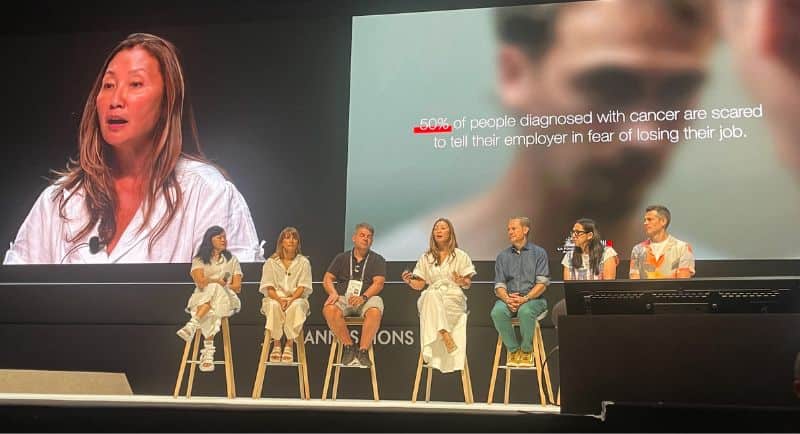
The Big C global brief opens for entries to erase stigma and insecurity of cancer at work
The Big C brief officially opens for entries.
This comes after top creative leaders from across Edelman, IPG, Omnicom, Publicis and WPP joined forces on stage in Cannes to deliver one of the most high-profile briefs the industry has seen, impacting the lives of up to 4 billion people.
Entries create a culture-defying programme, experience, and campaign that could erase the stigma and insecurity of cancer at work.
The brief for the Big C invites the entire industry and beyond, as individuals or duos within one agency or cross-agencies, to create a campaign that will launch on World Cancer Day 2024, in a global multi-media campaign supported by $100 million.
Powered by Cannes Lions’ world-class judging systems, judging will be led by senior creative and strategy leads across the five holding companies including: Susan Credle (global chair & global chief creative officer, FCB), Chaka Sobhani (global CCO of Leo Burnett), Luiz Sanches (CCO of BBDO NA), Judy John (global CCO of Edelman) and Debbi Vandeven (global CCO of VMLY&R).
The submission deadline is Friday, September 15. Judging will take place throughout October, with the winner announced at the end of that month. The winners will also receive a delegate pass to attend Cannes Lions 2024 from the Festival.
For more details please visit www.
Working with Cancer aims to completely erase the stigma and insecurity of cancer at work. The program initially launched by Publicis Groupe is an alliance of major international companies, with over 600 pledging businesses impacting up to 20 million employees, united by the aim to create an open, supportive and recovery-forward culture for cancer sufferers.
The program continues to be powered by partnerships with key cancer research bodies and influencers, including Dani Trops, The Stroups, CancerChic and Laurie MacCatskill.
–
Top image: Top creative leaders in Cannes
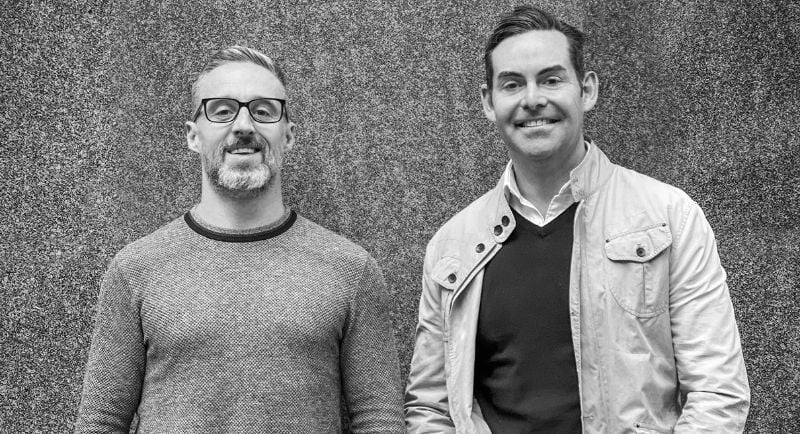
AJF welcomes Neville Doyle as head of strategy
AJF has announced the appointment of Neville Doyle to the role of head of strategy, with Doyle having recently commenced with the agency.
With 18 years of industry experience, Doyle brings a phenomenal track record. Having worked at some of the most awarded agencies in London, Auckland and Melbourne, Doyle was responsible for planning across a number of the world’s biggest brands where he helped create some of the most effective and creatively awarded campaigns of the last decade.
This work saw Doyle named twice in the top five planners in the world by the Big Won Report since moving to the southern hemisphere.
Nick Muncaster, AJF managing director, said: “Neville’s deep interdisciplinary background and experience have driven some of the world’s best campaigns.
“While that speaks for itself, Neville is also a great human and an exciting match for our clients and our team. We are already experiencing the immediate impact and creative drive he brings to the work as we continue our focus to conceive, create and design moments that move people.”
Doyle, originally from Ireland, started his career in the UK as a suit at TBWA\London. He then spent valuable time client side as a strategist with Disney-Pixar Europe.
Doyle moved to Auckland in 2012 to join Colenso BBDO for nearly five years, during which time the agency was twice named as the number one agency in the world with Doyle spearheading the integration of digital and social strategy into brand planning.
Doyle’s move to Australia has included digital strategy director and chief strategy officer roles at Clemenger BBDO Melbourne and Town Square.
Doyle said: “As a planner you cannot help but admire AJF’s creative and effectiveness track record. I am excited to join an inspiring leadership team as we write the next chapter in AJF’s storied history.
“It’s early days but I am already enjoying partnering with our clients and working with our team. I am truly excited as to what we have in store for the rest of 2023 and beyond.”
See also: AJF and PENSO merge as Nick Muncaster is appointed managing director
–
Top image left to right: Neville Doyle and Nick Muncaster
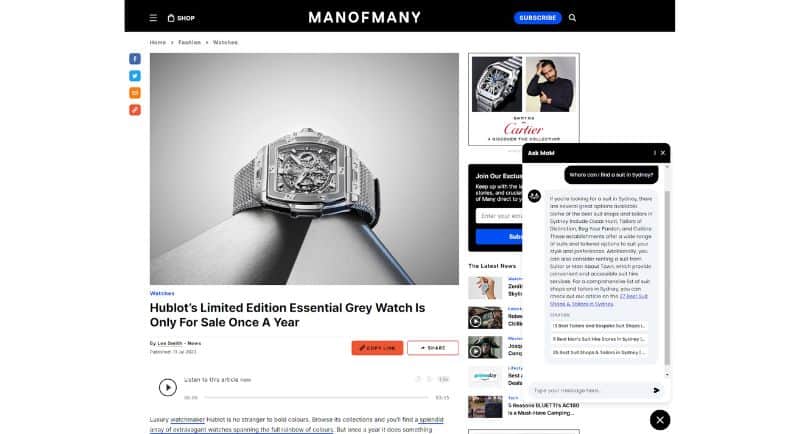
Man of Many unveils its AI chatbot integration “Ask MoM”
Man of Many unveiled its new AI chatbot, “Ask Man of Many” or “Ask MoM,” in a strategic partnership with Chatling.ai.
The website chatbot integration marks the next stage of the Australian men’s lifestyle media company’s AI journey, following the successful launch of its ChatGPT plugin, a first amongst major publishers.
The innovative new chatbot, developed by Chatling.ai, is designed to offer personalised, instant responses to user queries, reducing search fatigue and significantly improving reader engagement. Ask MoM boasts advanced features, a large language model and knowledge base training, providing users with accurate and immediate responses to queries surrounding a wide variety of subjects.
To ensure the accuracy of responses, Ask MoM will exclusively deliver information published on the Man of Many website. Clear disclosure regarding the chatbot’s AI nature and any propensity for missteps in responses will also be visible to users, safeguarding trust and transparency.
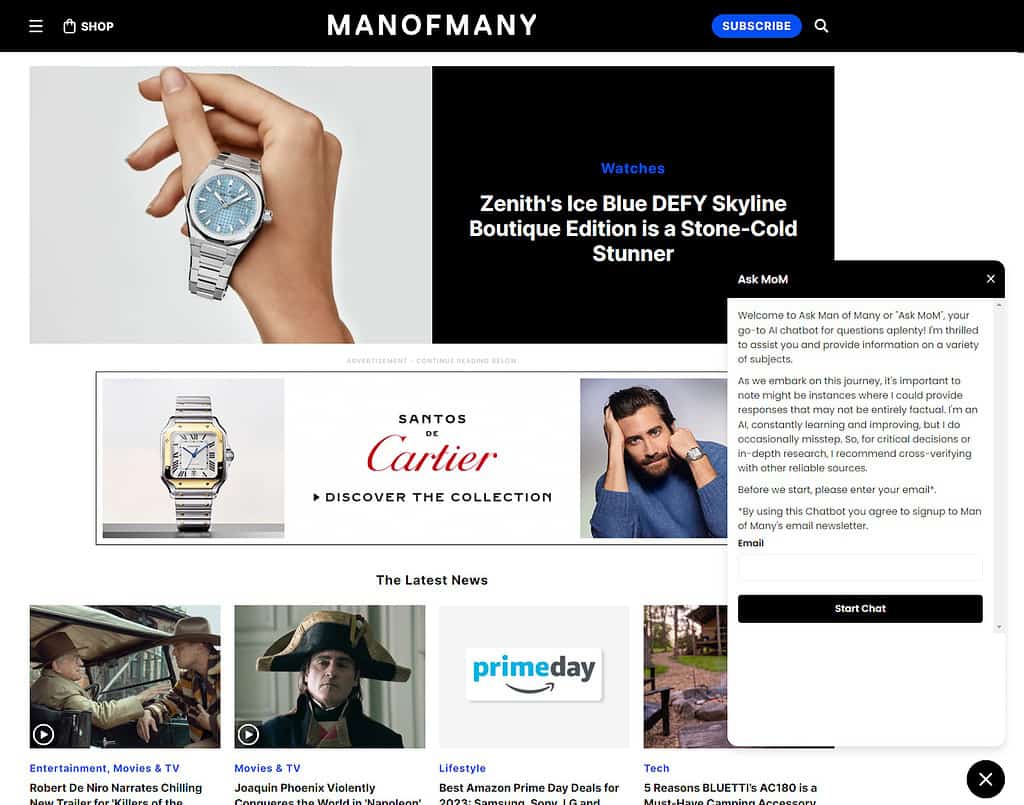
Scott Purcell, co-founder of Man of Many, said: “Our partnership with Chatling.ai signifies our commitment to leveraging cutting-edge technology to provide enhanced customer service and engagement. The introduction of Ask MoM is an exciting development for us and our audiences, bringing a new level of interaction to our platform and a seamless user experience for our readers.”
Chatling.ai’s system also provides valuable insights from customer interactions, helping Man of Many continually refine the chatbot’s responses and improve its accuracy.
Frank Arthur, co-founder of Man of Many, added: “Man of Many is excited to embrace this new chapter of AI integration. We believe the Ask MoM chatbot will enhance our site’s user experience and redefine how we engage with our readers. It’s all part of our ongoing commitment to innovation, digital accessibility, and first-class customer service.”
As Man of Many continues its foray into artificial intelligence and its applications, the publisher is committed to maintaining the highest standards of accuracy, originality, and quality in its published content.
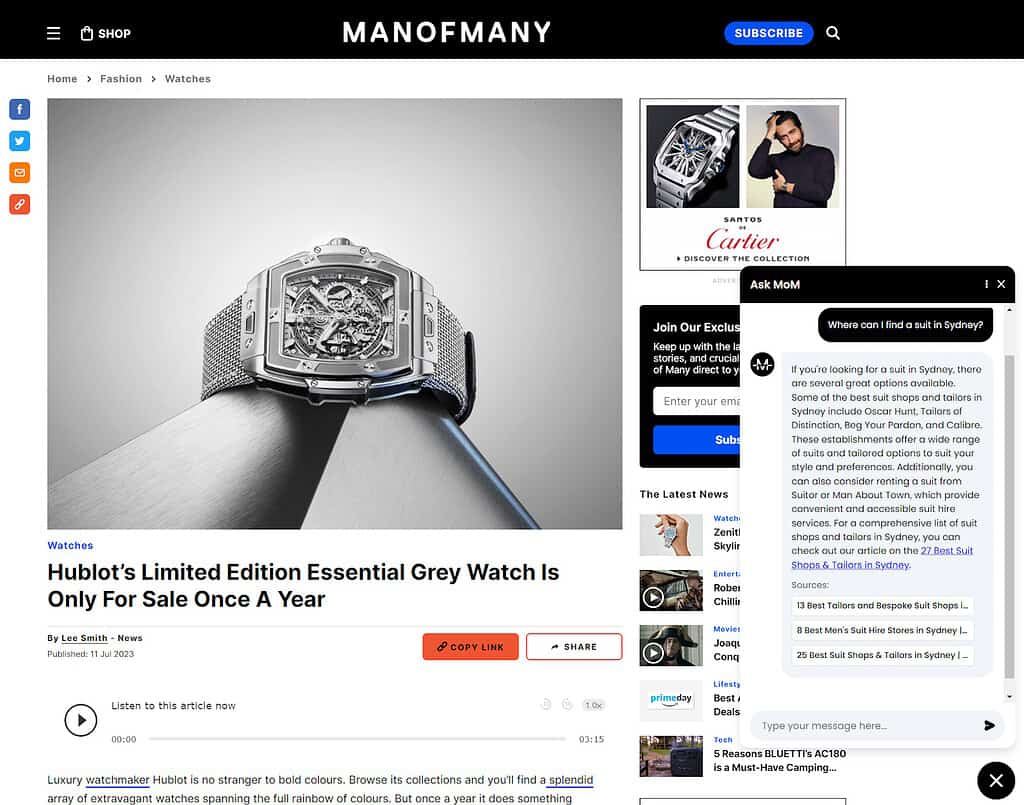
While the media brand is exploring innovative ways to use AI tools such as Ask MoM and their ChatGPT plugin to enhance user interaction and improve efficiencies, any content influenced by AI in its ideation or structure will carry clear and transparent disclosure per the publisher’s strict Editorial Guidelines.
Man of Many’s journalism remains the product of meticulous human effort, with every piece of content thoroughly vetted and signed off by human editors. The deployment of AI in the media brand’s reader interactions is aimed at supplementing and streamlining content discovery rather than supplanting human effort or journalism.
“Man of Many’s commitment to the integrity of journalism is unwavering,” Purcell added. “We look forward to harnessing the efficiencies and possibilities of AI while ensuring that the high quality and authenticity of our content remains paramount.”
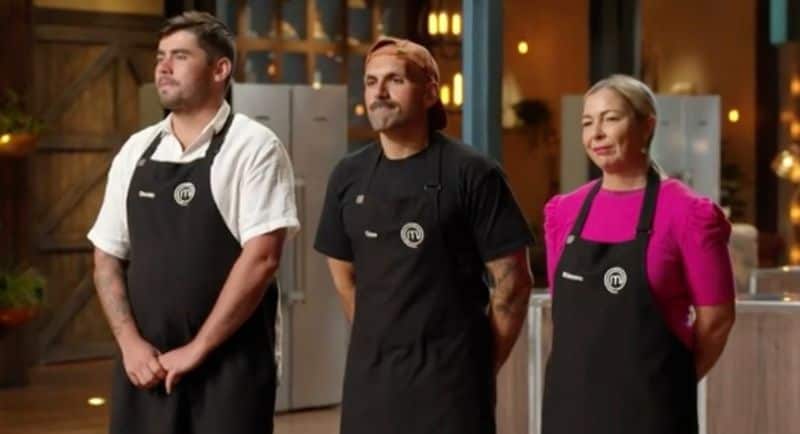
TV Ratings July 11, 2023: A shock elimination sees one of the strongest contenders leave MasterChef
• 10’s The Cheap Seats sees 560k views in Total TV
• New Leash on Life popular on ABC
Total TV Ratings, July 4
902,000 watched Seven’s Home and Away as Rose and Mali came to an agreement and Irene and John turned heads, up 23%.
818,000 watched 10’s MasterChef Australia where the final five hit the road to the Murray region of Victoria. Declan, Cath, Rhiannon and Theo played for a chance to earn a spot in Finals Week, up 24%. 560,000 also tuned into 10’s The Cheap Sheats, up 17%.
523,000 viewed Seven’s Million Dollar Island as the biggest pot in the game was on offer in the arena, up 25%.
516,000 watched the premiere of Joel Creasey’s New Leash on Life on ABC, up 21%.
Overnight TV Ratings, July 11
Primetime News
Seven News 942,000 (6:00pm) / 885,000 (6:30pm)
Nine News 757,000 (6:00pm) / 745,000 (6:30pm)
ABC News 537,000
10 News First 195,000 (5:00pm)/ 149,000 (6:00pm)
SBS World News 163,000 (6:30pm)/ 108,000 (7:00pm)
Daily Current Affairs
A Current Affair 597,000
7.30 461,000
The Project 194,000 6:30pm / 288,000 7pm
Breakfast TV
Sunrise 233,000
Today 210,000
News Breakfast 130,000
Seven won Tuesday night with a primary share of 17.2% and a network share of 26.7%. 7Two has won multi channels with a 3.9% share.
483,000 began their evening in Summer Bay with Seven’s Home and Away as Justin found a way to let Andrew go and Bree confronted Remi over his lies. Million Dollar Island followed as one player held all the power, before striking a deal that could come back to haunt them! 273,000 tuned in. US cop drama, The Rookie, followed with 173,000 watching on.
Nine’s A Current Affair (597,000) looked at a small town near Bendigo, Victoria whose gas and electricity prices have risen astronomically; however, if the families that live there moved just 15 minutes down the road, it would be a different story. Then, 281,000 watched Rush. During the episode, the teams were dropped into Bangkok’s chaotic Khaosan Rd at night and one traveller made a shock decision that changed the competition. A repeat of Travel Guides followed for 180,000 as our avid explorers visited Turkey before 122,000 watched day nine of Wimbledon.
On 10, The Project (194,000 6:30pm / 288,000 7pm) welcomed comedian Gabriel Iglesias via satellite and shared the story of Xavier Pudovkin, a five-year-old who was diagnosed with Neuroblastoma. The program looked at his parents’ desperate plea to help raise the funds to save their little boy’s life. Then, it was possibly the most stressful Pressure Test the MasterChef Australia kitchen had ever seen! After a quick trip to Bennelong restaurant in Sydney, Declan, Rhiannon and Theo were tasked with recreating Chef Peter Gilmore’s squid dish from memory. During the cook, Theo struggled, becoming increasingly frustrated; however, a beautiful moment saw Declan stop his own cook to help him out. Unfortunately, during the judging, Theo’s dish was “flawed” and he was eliminated from the competition, leaving Brent, Declan and Rhiannon in the top three. 547,000 tuned in. The Cheap Seats followed with 340,000 staying on.
461,000 watched ABC’s 7.30 explore the assassination of a senior Sydney crime figure and the fear that it would spark a gang war revival. Sarah Ferguson also interviewed Margot Robbie and Greta Gerwig about bringing Barbie to the big screen. 289,000 then watched New Leash on Life, where terrified Memphis faced being euthanised unless the right foster carer could be found. 212,000 then stayed on for Black Hand.
The highest rating non-news show on SBS was Great Coastal Railway Journeys with 180,000 tuning in to see Michael Portillo on the last leg of his railway journey around the northwest coast of England.
Week 28: Tuesday
| TUESDAY METRO | |||||||||
|---|---|---|---|---|---|---|---|---|---|
| ABC | Seven | Nine | 10 | SBS | |||||
| ABC | 11.2% | 7 | 17.2% | 9 | 17.1% | 10 | 12.8% | SBS | 7.0% |
| ABC KIDS/ ABC TV PLUS | 3.0% | 7TWO | 3.9% | GO! | 2.5% | 10 Bold | 3.1% | VICELAND | 1.9% |
| ABC ME | 0.3% | 7mate | 3.4% | GEM | 2.4% | 10 Peach | 3.0% | Food Net | 1.3% |
| ABC NEWS | 1.9% | 7flix | 1.3% | 9Life | 1.5% | 10 Shake | 1.3% | NITV | 0.7% |
| 7Bravo | 0.8% | 9Rush | 1.5% | SBS World Movies | 0.9% | ||||
| SBS WorldWatch | 0.0% | ||||||||
| TOTAL | 16.4% | 26.7% | 25.1% | 20.1% | 11.8% | ||||
| TUESDAY REGIONAL | |||||||||||
|---|---|---|---|---|---|---|---|---|---|---|---|
| ABC | Seven Affiliates | Nine Affiliates | 10 Affiliates | SBS | Sky Regional | ||||||
| ABC | 10.9% | 7 | 18.1% | 9 | 13.7% | 10 | 8.8% | SBS | 5.9% | Sky News Regional | 3.8% |
| ABC KIDS/ ABC TV PLUS | 3.8% | 7TWO | 4.8% | GO! | 2.1% | 10Bold | 4.6% | VICELAND | 2.2% | ||
| ABC ME | 0.3% | 7mate | 6.3% | GEM | 3% | 10Peach | 2.4% | Food Net | 1% | ||
| ABC NEWS | 1.6% | 7flix (Excl. Tas/WA) | 1.2% | 9Life | 1.9% | 10Shake (exc N/NSW) | 1.7% | SBS World Movies | 0.7% | ||
| 7Bravo | 0.9% | SBS WorldWatch | 0.0% | ||||||||
| NITV | 0.8% | ||||||||||
| TOTAL | 16.6% | 31.3% | 20.7% | 17.5% | 10.6% | 3.8% | |||||
| TUESDAY METRO ALL TV | |||||||||
|---|---|---|---|---|---|---|---|---|---|
| FTA | STV | ||||||||
| 88.4% | 11.6% | ||||||||
TUESDAY FTA
- Seven News Seven 942,000
- Seven News At 6.30 Seven 885,000
- Nine News Nine 757,000
- Nine News 6:30 Nine 745,000
- A Current Affair Nine 597,000
- MasterChef Australia 10 547,000
- The Chase Australia Seven 544,000
- ABC News ABC TV 537,000
- Home And Away Seven 483,000
- 7.30 ABC TV 461,000
- Hot Seat Nine 410,000
- The Cheap Seats 10 340,000
- The Chase Australia Seven 329,000
- New Leash On Life ABC TV 289,000
- The Project 7pm 10 288,000
- Rush Nine 281,000
- Tipping Point Nine 274,000
- Million Dollar Island Seven 273,000
- Nine’s Afternoon News Nine 257,000
- Hot Seat Nine 244,000
Demo Top Five
16-39 Top Five
- MasterChef Australia 10 119,000
- Nine News Nine 91,000
- Nine News 6:30 Nine 88,000
- Seven News Seven 87,000
- Seven News At 6.30 Seven 85,000
18-49 Top Five
- Seven News At 6.30 Seven 185,000
- MasterChef Australia 10 182,000
- Seven News Seven 179,000
- The Cheap Seats 10 143,000
- Nine News 6:30 Nine 141,000
25-54 Top Five
- Seven News At 6.30 Seven 232,000
- Seven News Seven 231,000
- MasterChef Australia 10 219,000
- Nine News 6:30 Nine 187,000
- Nine News Nine 174,000
TUESDAY MULTICHANNEL
- The Coroner 7TWO 104,000
- NCIS 10 Bold 103,000
- Outback Truckers 7mate 99,000
- Peppa Pig ABC Kids/ABC TV Plus 97,000
- Bargain Hunt 7TWO 94,000
- Outback Truckers 7mate 93,000
- Octonauts ABC Kids/ABC TV Plus 93,000
- Bull 10 Bold 91,000
- Pfffirates ABC Kids/ABC TV Plus 90,000
- Ben And Holly’s Little Kingdom ABC Kids/ABC TV Plus 89,000
- Bluey ABC Kids/ABC TV Plus 88,000
- Inspector George Gently 7TWO 88,000
- The Adventures Of Paddington ABC Kids/ABC TV Plus 86,000
- Shaun The Sheep ABC Kids/ABC TV Plus 84,000
- The Big Bang Theory 10 Peach 84,000
- Adam Hills: The Last Leg ABC Kids/ABC TV Plus 83,000
- The Big Bang Theory 10 Peach 80,000
- Spicks And Specks ABC Kids/ABC TV Plus 80,000
- Andy’s Wild Adventures ABC Kids/ABC TV Plus 80,000
- The Adventures Of Paddington ABC Kids/ABC TV Plus 79,000
TUESDAY STV
- The Great Australian Bake Off Lifestyle Channel 54,000
- Live: NRL 360 FOX LEAGUE 54,000
- Live: AFL 360 FOX FOOTY 53,000
- The Bolt Report Sky News Live 42,000
- Credlin Sky News Live 35,000
- Paul Murray Live Sky News Live 34,000
- Sharri Sky News Live 31,000
- Antiques Roadshow Lifestyle Channel 29,000
- Chris Kenny Tonight Sky News Live 28,000
- Paramedics On Scene Real Life 28,000
- Selling Houses Australia Lifestyle Channel 27,000
- NCIS FOX Crime 25,000
- CSI: Crime Scene Investigation FOX Crime 25,000
- Coronation Street UKTV 24,000
- Highway Patrol Real Life 24,000
- FBI FOX Crime 24,000
- Escape To The Country Lifestyle Channel 23,000
- Eastenders UKTV 22,000
- Jeopardy! FOX Classics 22,000
- NCIS FOX Crime 21,000
Shares all people, 6pm-midnight, Overnight (Live and AsLive), Audience numbers FTA metro, Sub TV national
Source: OzTAM and Regional TAM 2023. The Data may not be reproduced, published or communicated (electronically or in hard copy) without the prior written consent of OzTAM
Media News Roundup
Business of Media
Second person in claims against BBC presenter
The individual has told BBC News they were first contacted anonymously by the high-profile male presenter via a dating app. They claim that they were pressured to meet up but declined and were threatened with a number of abusive, expletive-filled messages when they hinted that they might expose the star online.
The BBC said it has seen the messages and confirmed that they came from a phone number belonging to the presenter.
It has also emerged that a second police force was contacted three months ago about claims involving a BBC presenter but concluded there was no criminality, The London Times reports.
BBC chief Tim Davie on Tuesday insisted on allowing the presenter to remain anonymous, despite mounting calls for his identity to be revealed.
The accusations fuelled a fifth straight day of fevered front-page headlines in the British media, with the publicly funded BBC also leading its own news bulletins with the story.
Australia’s first weatherman Alan Wilkie dies aged 94
Wilkie “passed away peacefully” on Monday night surrounded by his three children, Andrew, Katrina and Michelle, according to Nine News.
He presented the weather on that network for more than 25 years.
Wilkie became Australia’s first weather presenter on the ABC in the 1950s.
He reflected on his first appearance on television in an interview with The Australian Women’s Weekly in 1977, where he explained he only went for the job because his current employer, the Bureau of Meteorology, insisted.
“It was in the very first week of television and I nearly died. I was so frightened. I don’t remember a single thing I said, but it must have been all right,” he said.
Disney explores strategic options for India business
The company has talked to at least one bank about ways to help the India business grow, while sharing some of the costs, according to people familiar with the matter. The talks are in the early stages and it is unclear which options, if any, Disney might pursue.
Disney and many of its rivals are in the throes of a costly pivot toward streaming and away from traditional TV businesses. Toward that effort, they spent heavily on deals, content and technology at home and abroad, with mixed success.
Disney paid $71.3 billion in 2019 for entertainment assets of 21st Century Fox. At the time, Star India was considered one of Fox’s crown jewels, and it was an important part of Disney’s plan to build out its fledgling streaming business globally.
The deal gave Disney the broadcast and streaming rights for increasingly popular Indian Premier League cricket matches as well as dozens of TV channels in several languages and a stake in a production company that makes Bollywood movies. Star’s Hotstar mobile-first streaming service, which at the time offered most of its content free, had 150 million monthly active users and was growing rapidly, largely because of the popular cricket rights.
Social Media
Suspended from Twitter, the account tracking Elon Musk’s jet has landed on Threads
“Elon Musk’s Jet” made its first post to the new site last week, with owner Jack Sweeney writing: “ElonJet has arrived to Threads!”
An offshoot of Instagram, Threads debuted on Wednesday and allows users to post text. Meta CEO Mark Zuckerberg said in a post on Friday that the app already had 70 million new sign-ups.
Sweeney, a Florida college student, gained notoriety for the Twitter account that posted public transponder information from Musk’s private plane, showing where it took off and landed.
After Musk bought Twitter for $44 billion last year, the billionaire CEO said he would allow the account to remain on the site in the spirit of free speech but later backtracked and suspended it.
Why the early success of Threads may crash into reality
If this sounds like Instagram’s new Threads app and its push against its rival Twitter, think again. The year was 2011 and Google had just rolled out a social network called Google+, which was aimed as its “Facebook killer.” Google thrust the new site in front of many of its users who relied on its search and other products, expanding Google+ to more than 90 million users within the first year.
But by 2018, Google+ was relegated to the ash heap of history. Despite the internet search giant’s enormous audience, its social network failed to catch on as people continued flocking to Facebook — and later to Instagram and other social apps.
In the history of Silicon Valley, big tech companies have often become even bigger tech companies by using their scale as a built-in advantage. But as Google+ shows, bigness alone is no guarantee of winning the fickle and faddish social media market.
See Also: Inside Threads: How media companies have latched on to Meta’s Twitter competitor
See Also: With 10 million sign-ups in seven hours, what does Threads mean for advertisers and creators?
Radio
Cost of Kyle Sandilands’ honeymoon revealed on-air
Sandilands and new wife Tegan Kynaston recently enjoyed a lavish three-week honeymoon in the south of France and Spain – but they weren’t alone for the trip, bringing everyone from their baby son Otto, to his nanny, to multiple employees of The Kyle and Jackie O Show along for the ride.
As Jackie O revealed today as she went through the final itemised spending list for the holiday, the costs were astronomical. As it turns out, recent media reports that it had been a “$100,000 honeymoon” were way off.
Costs included $35,000 for first class return flights to Europe for he and Tegan, $12,000 for car rental and an astronomical $25,000 for “ground transfers”.
“You know why? We had a driver on standby for the entire (holiday) in case someone wanted to go somewhere,” Sandilands revealed. “That’s annoyed me now, I didn’t realise it was going to be so much.”
Jackie finished by revealing the total cost of this three-week honeymoon: a staggering $513,430.
Television
Peter Overton addresses rumours Tom Cruise banned him from Mission Impossible premiere after controversial interview
The endorsement of the Hollywood icon comes after rumours that Cruise and his team banned Overton from attending the Mission: Impossible – Dead Reckoning Part One premiere in Sydney last week and from interviewing Cruise on the red carpet.
The feud reportedly stems from a 2005 60 Minutes interview between the two, in which tensions flare over Overton’s line of questioning about Cruise’s split from Nicole Kidman and how the two will continue to communicate and care for their children.
During the interview, which occasionally resurfaces in the tabloids and social media, Cruise told Overton he was “stepping over the line” and implored him to “take responsibility” for his line of questioning. He also told Overton to “put your manners back in”.
Overton was absent from the film’s premiere this year, which was attended by many other news anchors, entertainment reporters and media identities. His absense has given rise to a rumour that he was ‘banned’ from attending due to his conduct in 2005.
Overton has now spoken about the rumours and conceded that he was not invited.
